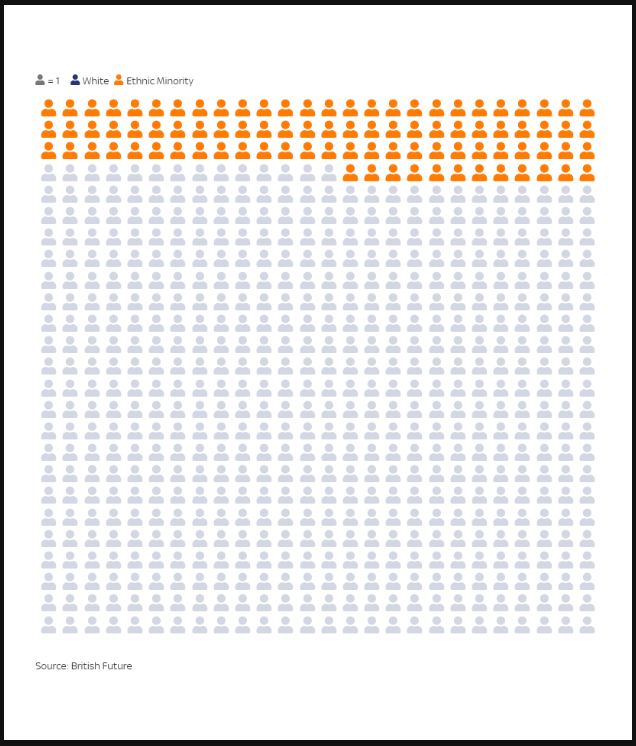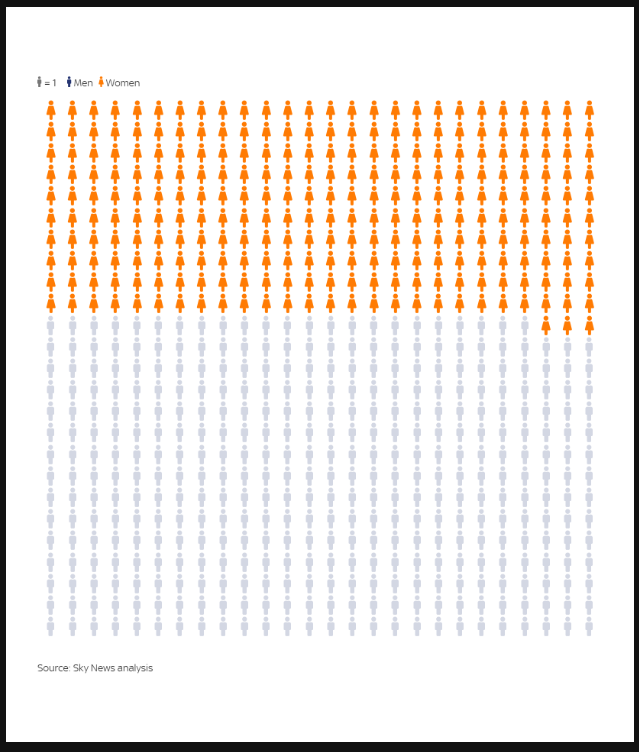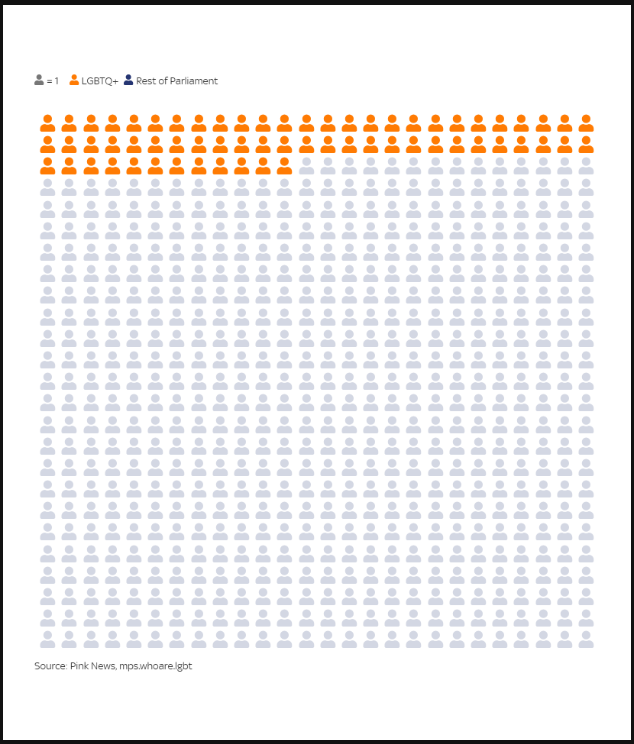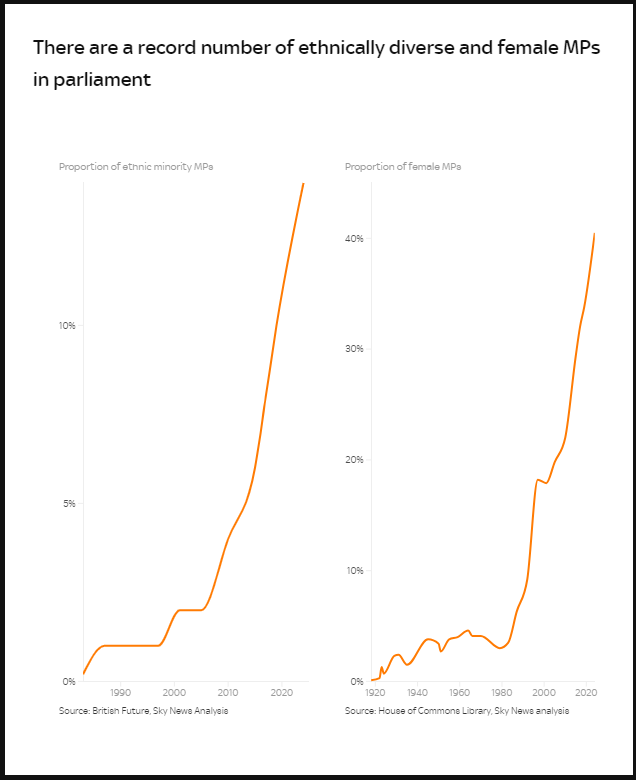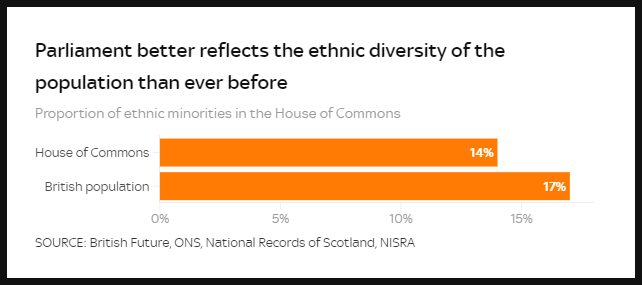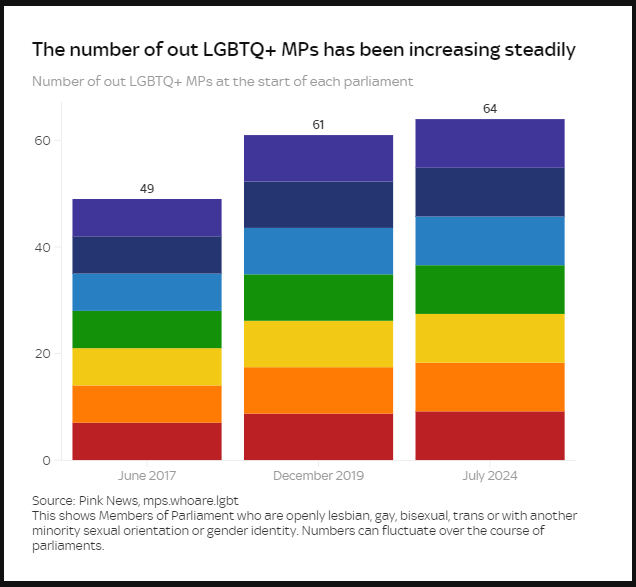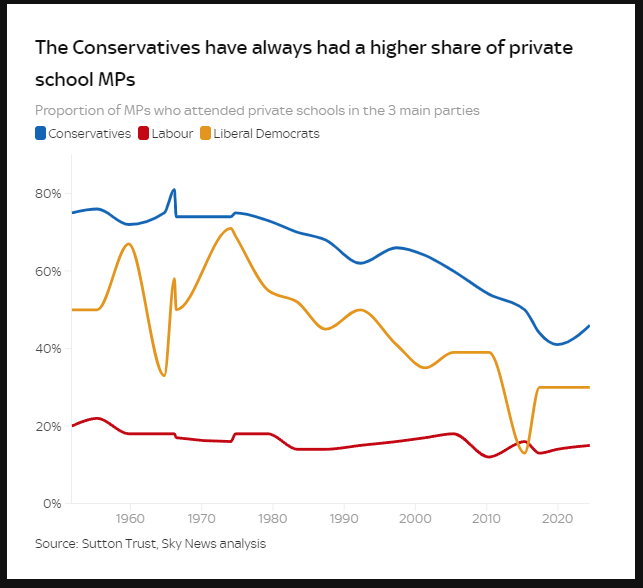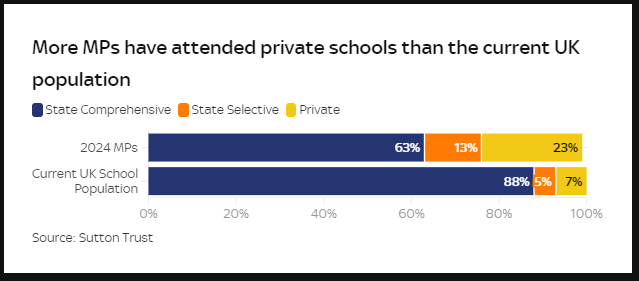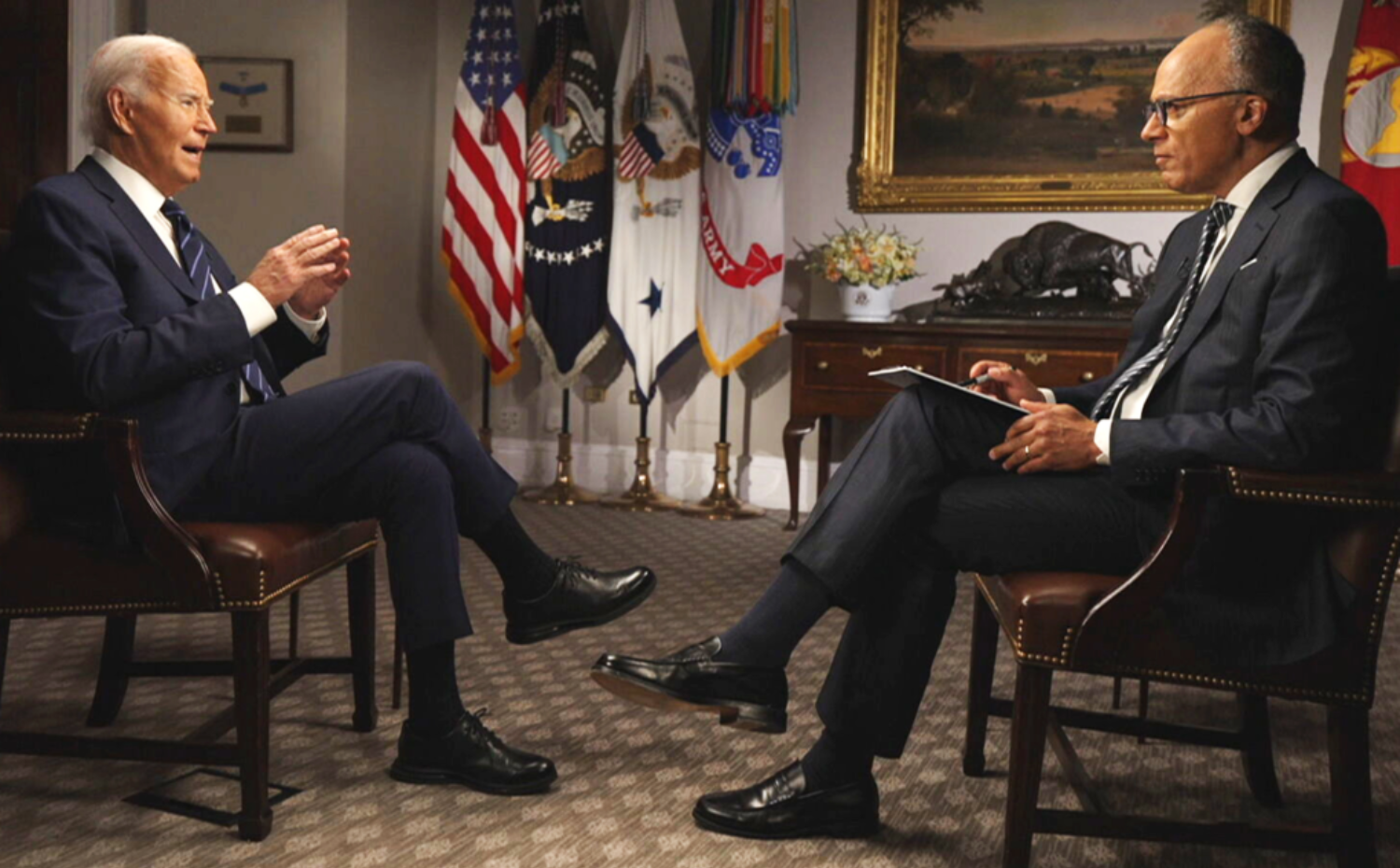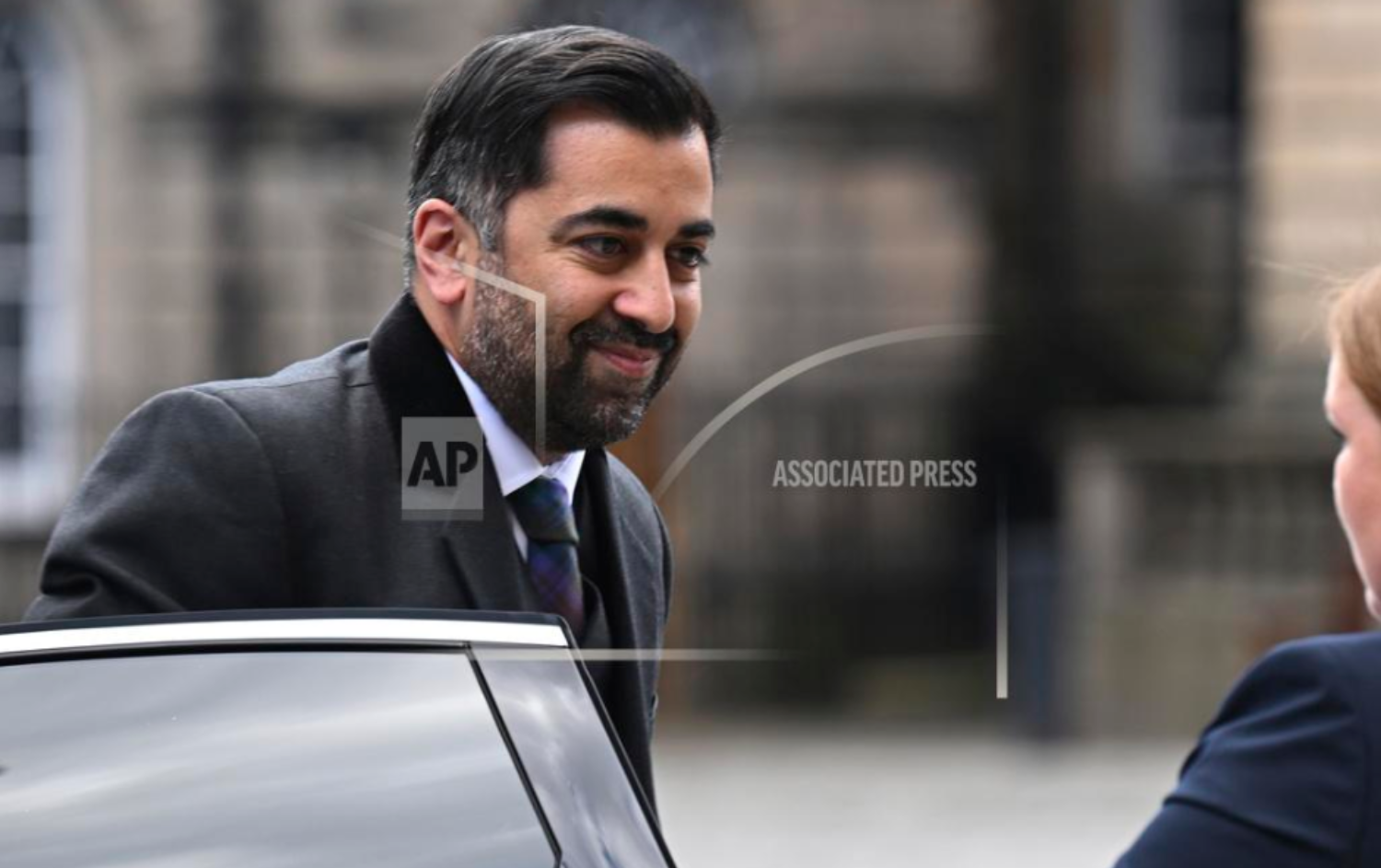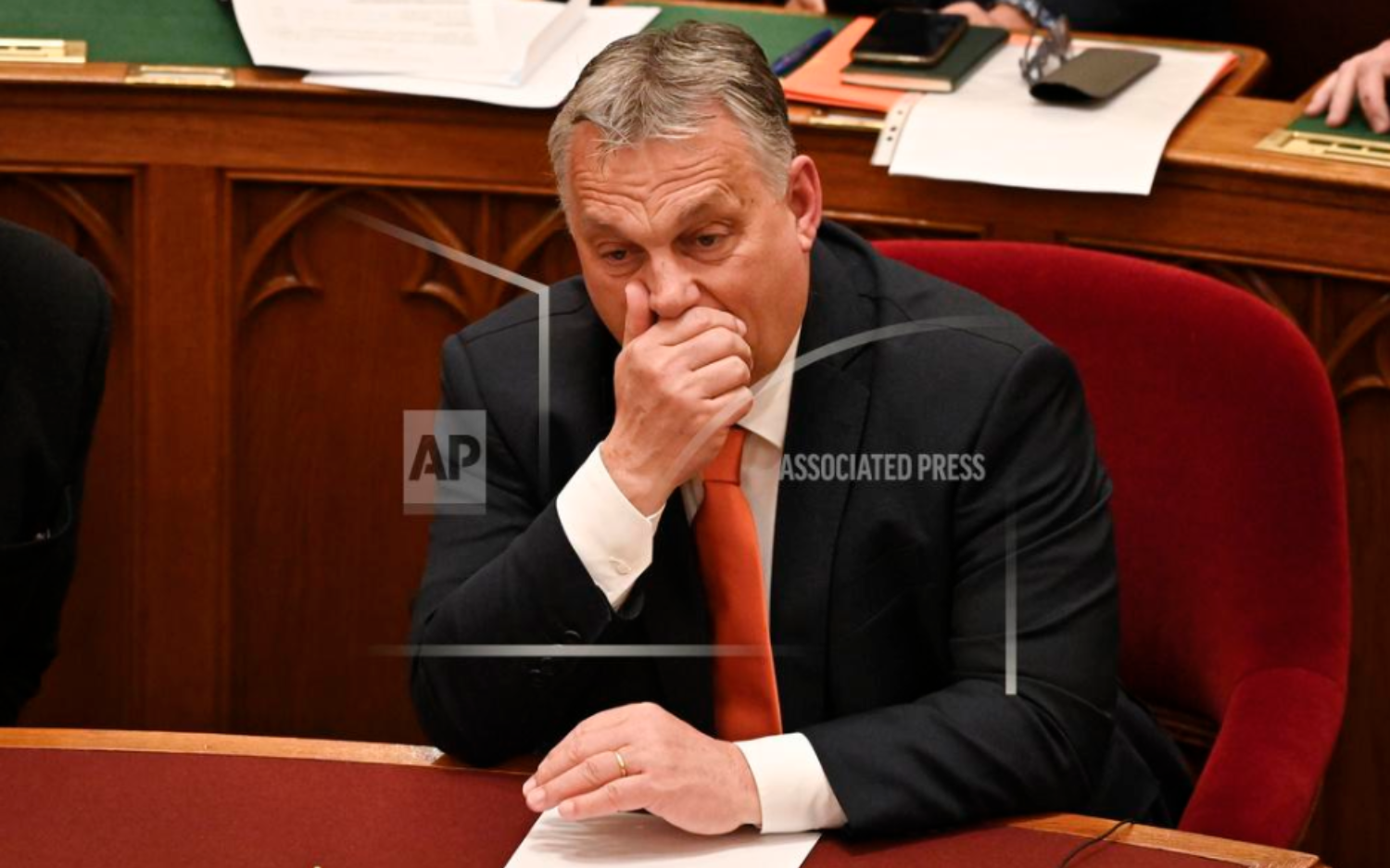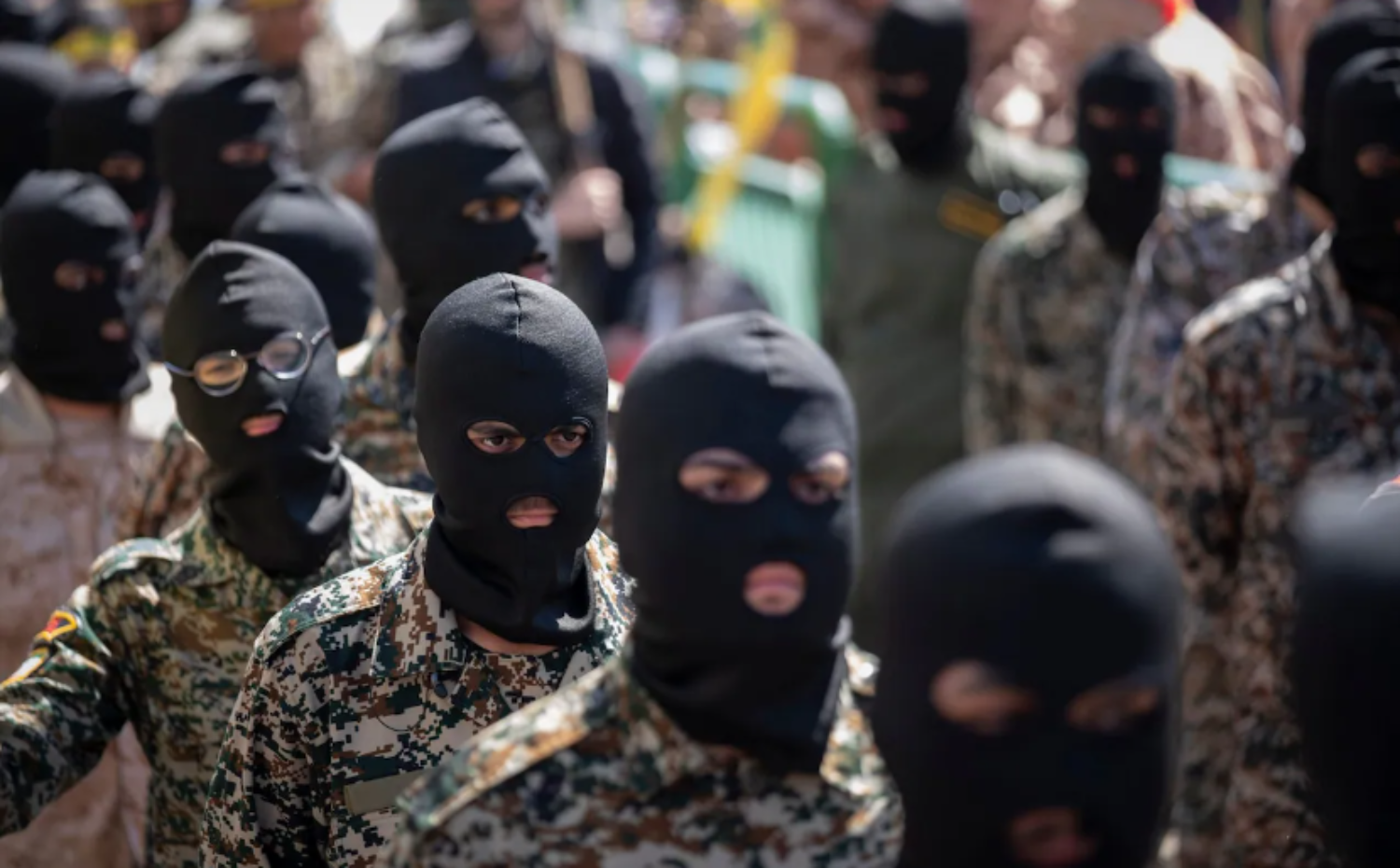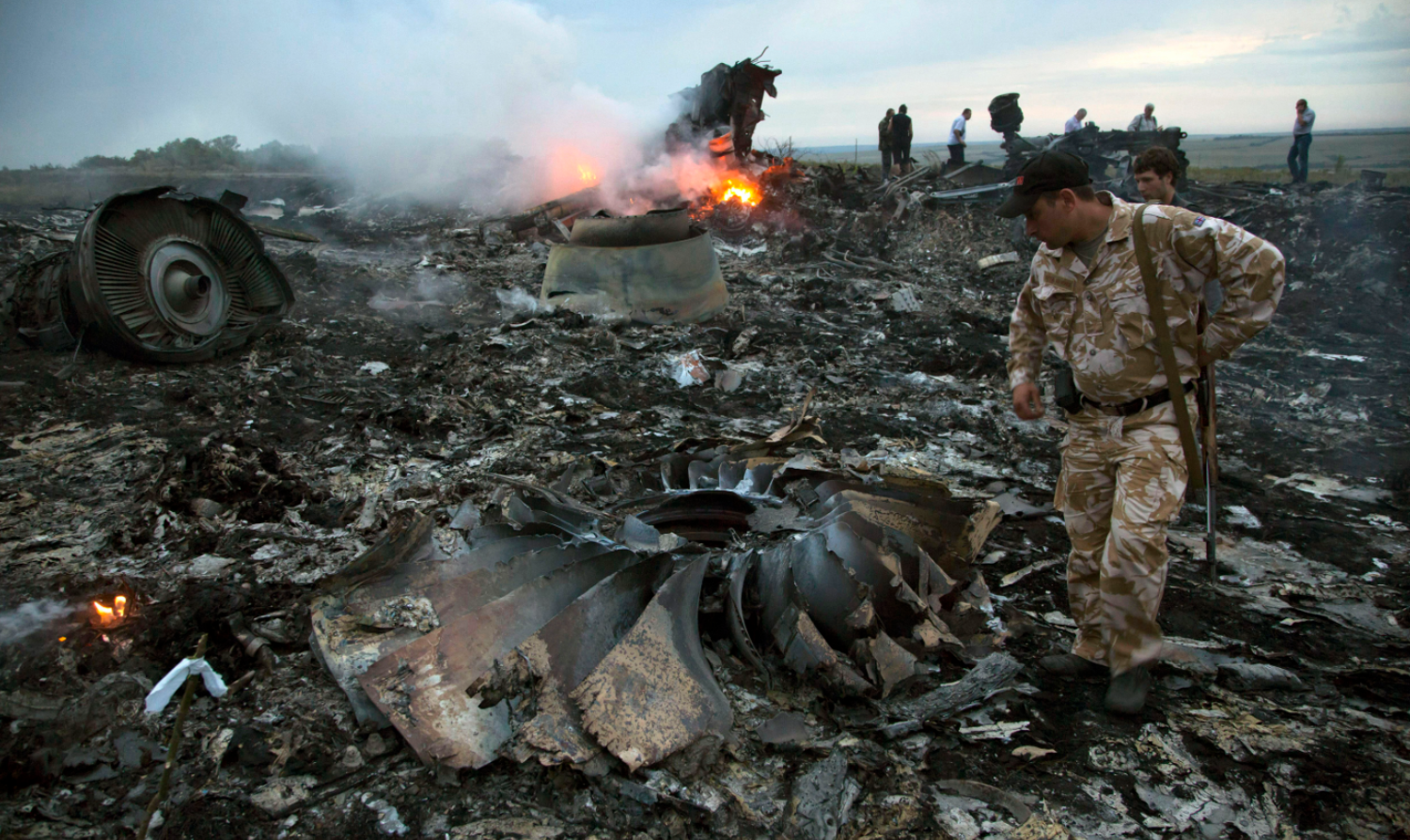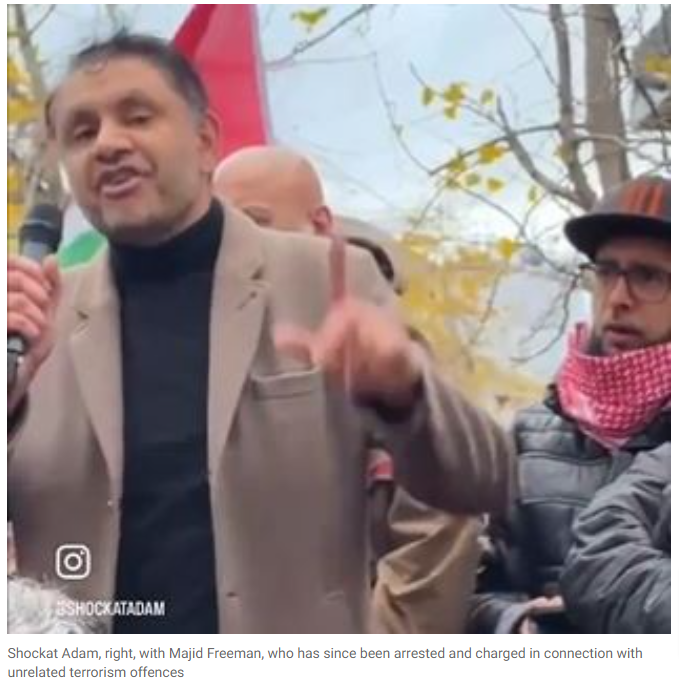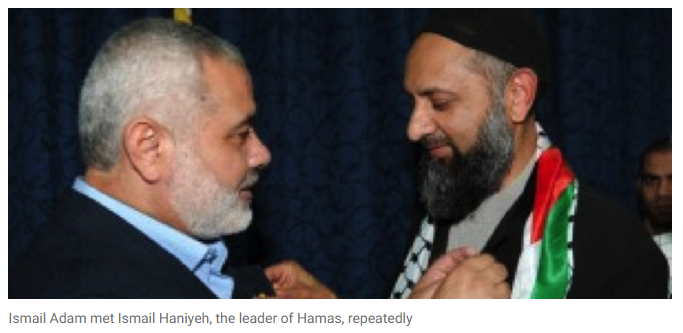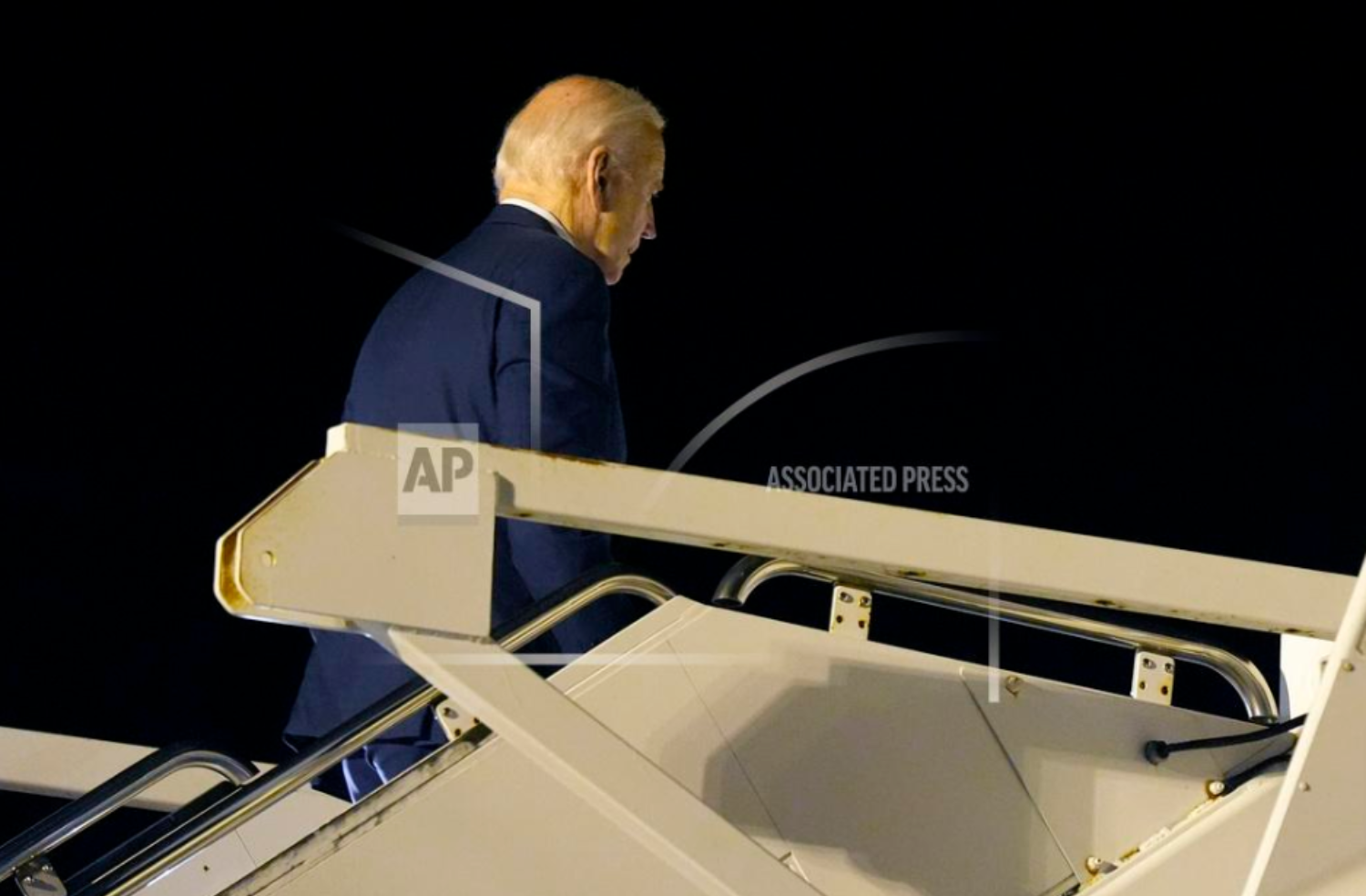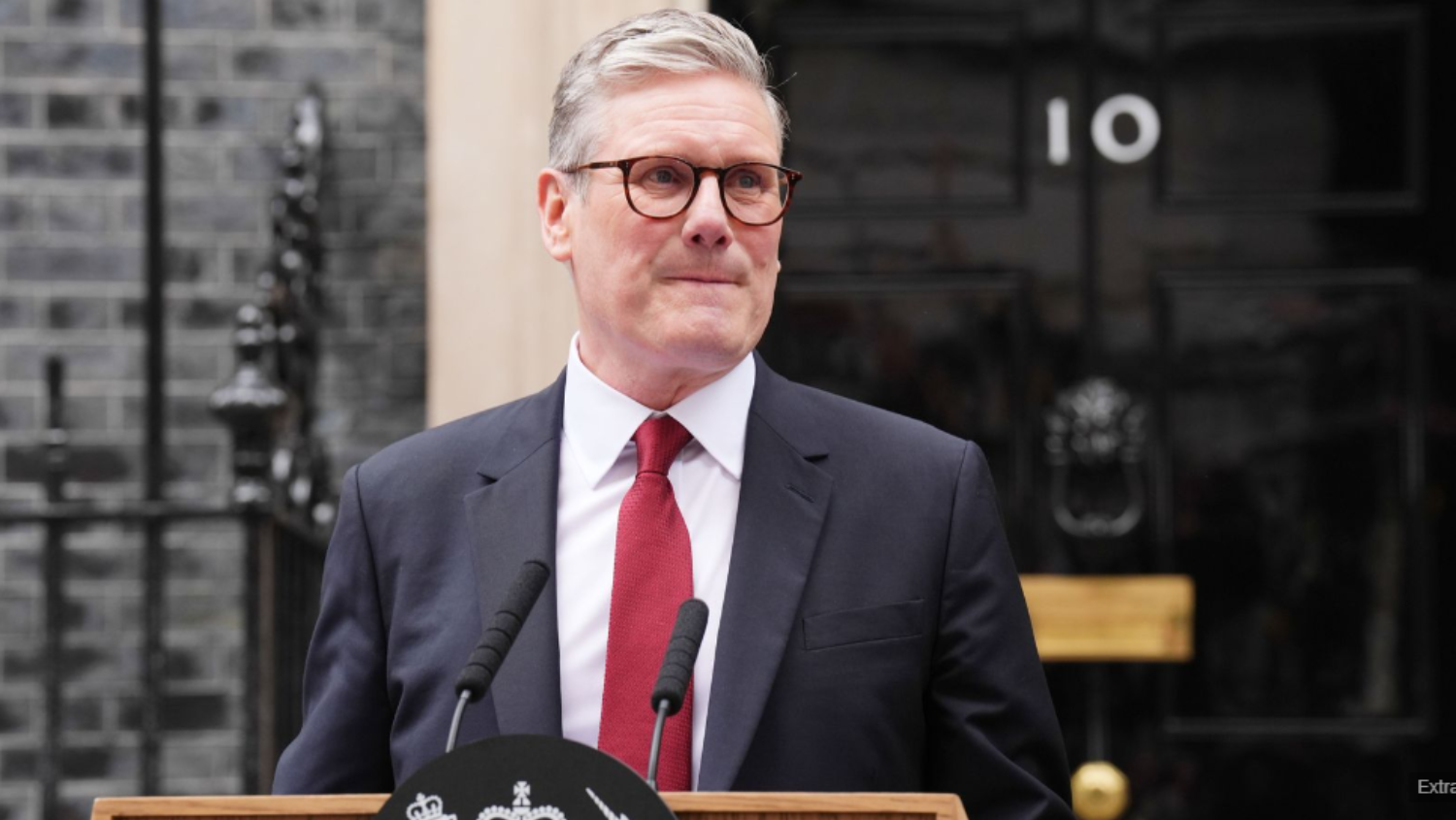-
Posts
10,807 -
Joined
-
Last visited
Content Type
Events
Forums
Downloads
Quizzes
Gallery
Blogs
Everything posted by Social Media
-
Tech billionaire Elon Musk has announced a commitment to donate $45 million per month to a new political action committee (PAC) backing former President Donald Trump. This significant pledge, reported by The Wall Street Journal, marks one of the largest financial commitments of the 2024 presidential campaign, potentially amounting to hundreds of millions of dollars over the election cycle. The announcement coincided with Trump being named the Republican Party's official nominee and his selection of Ohio Senator JD Vance as his running mate. The PAC, named America PAC, will focus primarily on voter outreach and registration efforts, aiming to counteract the traditionally strong campaigns of the Democratic Party in these areas. Other notable backers of America PAC include the Winklevoss twins, tech entrepreneur Joe Lonsdale, former ambassador to Canada and Kentucky Senate candidate Kelly Craft, and her husband, coal executive Joe Craft. The PAC was established in May and registered in Texas. According to federal filings, it raised $8.75 million in the second quarter and had just under $100,000 cash on hand at the end of June. Musk's commitment to America PAC represents a significant shift in his political involvement. Despite previously promising to stay out of the 2024 election, Musk has now endorsed Trump and pledged substantial financial support. This endorsement came shortly after Trump survived an attempted assassination, with Musk expressing his support and wishing for Trump's rapid recovery in a post on his social media platform X, alongside a video of Trump raising his fist after being shot in the ear. Musk's fortune is estimated at around $252 billion, making him one of the wealthiest individuals in the world. He is the CEO of electric carmaker Tesla, leads the space firm SpaceX, and owns the social media platform X. His financial backing of Trump's campaign through America PAC could significantly influence the dynamics of the 2024 presidential race. The Journal also reported that Musk and Trump had discussed a potential advisory role for Musk in a second Trump administration, indicating growing political closeness between the two figures in recent months. This financial commitment, along with the support from other high-profile backers, positions America PAC as a formidable force in the upcoming election, particularly in efforts to mobilize voters and enhance Trump's campaign infrastructure. Musk's unprecedented financial support underscores the high stakes of the 2024 election and highlights the increasing involvement of billionaires in shaping political outcomes. As America PAC ramps up its activities, its impact on the election landscape will be closely watched by both supporters and opponents of the Trump campaign. Credit: NYT 2024-07-17 Get our Daily Newsletter - Click HERE to subscribe
-
The United Kingdom's House of Commons has seen an influx of new MPs, marking not just a record number of first-timers but also a significant increase in diversity. This newly constituted parliament is a more accurate reflection of the nation's demographic makeup, with a notable rise in MPs from ethnically diverse backgrounds and an increased number of women. Over half of this new parliament comprises first-time MPs, making the House of Commons more representative of the people it serves. Dr. Sofía Collignon, a senior lecturer in comparative politics at Queen Mary University of London, highlighted the dual impact of this change. On the positive side, the influx of new faces brings fresh perspectives and positions on critical issues. However, it also means that a significant number of MPs will need to undergo training to familiarize themselves with parliamentary procedures and the often complex, unspoken norms of working in parliament. These norms, she pointed out, are learned through experience and daily interactions within the parliamentary environment. The rise in diversity is not an overnight phenomenon but the result of sustained efforts over many years to encourage and promote individuals from minority backgrounds to become parliamentarians. Dr. Collignon noted the pivotal role of the Labour Party in recruiting women and diverse candidates, reflecting the long-term strategies implemented to enhance representation. In his inaugural speech as prime minister, Sir Keir Starmer celebrated the "most diverse parliament by race and gender." Women now constitute more than two-fifths of the House of Commons, a significant increase from the 0.7% female representation seen a century ago and ten percentage points higher than in the 2015 election. While this still falls short of the female proportion in the British population, it marks substantial progress. Ethnic diversity has also seen a notable increase. With 90 MPs from ethnically diverse backgrounds, making up 14% of the Commons, the representation is closer to Britain's 17% ethnically diverse population. This figure is a dramatic improvement from the four MPs elected in 1987, a group that included Dianne Abbott, the first black female MP. Furthermore, this parliament is one of the most diverse in terms of sexuality and gender identity, with 64 MPs openly identifying as LGBTQ+. This figure, although slightly lower than the peak of 68 MPs before the recent election, remains the highest at the start of any parliamentary term. Educational backgrounds of MPs are also evolving. The number of MPs with private education has decreased, with Sir Keir's new cabinet reflecting this trend. Out of 25 cabinet members, only one attended a private school and another a grammar school. This contrasts sharply with the previous cabinets under Mr. Sunak and Liz Truss, where private education was more common. Currently, 92% of the cabinet members received state education, indicating a shift towards greater inclusivity and representation of the general populace. Sir Keir Starmer emphasized the importance of having a parliament that mirrors the society it represents, fostering greater trust in democratic institutions. However, he acknowledged that trust is not unconditional and that having a diverse parliament does not automatically guarantee policies that better serve the public's interests. For instance, despite increased female representation in the Conservative Party during David Cameron's tenure, support from female voters has declined over the past decade, with women now more likely to vote Labour. It is also evident that an MP's background does not necessarily dictate their political stance. Recent years have seen South Asian individuals in prominent government positions, such as home secretaries and even a prime minister, who have supported stringent anti-immigration policies. This underscores the complexity of identity and politics, suggesting that diversity in representation does not always equate to predictable policy outcomes. The decrease in the proportion of privately educated Conservative MPs, now at 46%, marks a notable shift from previous decades. However, the overall proportion of privately educated MPs across all parties remains significantly higher than the current UK school population, with 23% of MPs having attended private schools compared to just 7% of today's students. Dr. Collignon noted that the average age of MPs is decreasing, with the Labour Party contributing significantly to this trend by winning the majority of seats. This younger parliament, combined with its diversity, holds the potential for more inclusive and representative policymaking. Dr. Collignon emphasized the importance of hearing from people with varied backgrounds and experiences to achieve better substantive representation of key issues. The composition of the new House of Commons signifies a step forward in making the UK's legislative body more reflective of its society. With more women, LGBTQ+ individuals, and ethnic minorities now sitting in the Commons, along with a higher proportion of state-educated MPs, this parliament promises to bring a broader range of perspectives to the table. As Sir Keir Starmer pointed out, a diverse parliament fosters trust in democratic institutions, though it remains to be seen how this diversity will translate into policy outcomes that benefit the broader public. Credit: Sky News 2024-07-17 Get our Daily Newsletter - Click HERE to subscribe
-
Researchers have discovered a cave on the Moon that could serve as a future home for humans. This cave, which is at least 100 meters deep, offers a promising location for establishing a permanent human base on the lunar surface. The discovery comes amid a growing international effort to establish a human presence on the Moon, driven by the necessity to protect astronauts from the harsh conditions such as radiation, extreme temperatures, and space weather. Helen Sharman, the first British astronaut to travel to space, commented on the discovery, stating that the newly-found cave appeared to be an ideal location for a base. She suggested that humans could potentially be living in these lunar pits within the next 20 to 30 years. However, she noted the depth of the cave could present challenges, requiring astronauts to use abseiling techniques or advanced technologies like jet packs or lifts to access it. The cave was identified by Lorenzo Bruzzone and Leonardo Carrer from the University of Trento in Italy, who utilized radar to penetrate the opening of a pit located on the Mare Tranquillitatis. This rocky plain, visible from Earth, is also historically significant as the landing site of Apollo 11 in 1969. The cave features a skylight on the Moon’s surface that leads to vertical and overhanging walls and a sloping floor that might extend further underground. The formation of this cave dates back millions or even billions of years, created by lava flows that tunneled through the rock. Professor Carrer explained that the closest Earth equivalent to this lunar cave would be the volcanic caves found in Lanzarote, Spain. The researchers visited these terrestrial caves as part of their study to gain insights into similar formations. "It’s really exciting. When you make these discoveries and you look at these images, you realize you’re the first person in the history of humanity to see it," Prof Carrer remarked. Upon understanding the significant size of the cave, Bruzzone and Carrer recognized its potential as a location for a lunar base. "After all, life on Earth began in caves, so it makes sense that humans could live inside them on the Moon," Prof Carrer added. While the cave has yet to be fully explored, researchers are optimistic that ground-penetrating radar, cameras, or robots could be utilized to create a comprehensive map of its interior. The existence of lunar caves was first theorized around 50 years ago. In 2010, the Lunar Reconnaissance Orbiter captured images of pits that scientists believed could be cave entrances. However, the depth and stability of these caves remained uncertain until the recent findings by Bruzzone and Carrer. Francesco Sauro, Coordinator of the Topical Team Planetary Caves of the European Space Agency, emphasized the importance of this discovery, stating, "We have very good images of the surface—up to 25cm of resolution—we can see the Apollo landing sites—but we know nothing about what lies below the surface. There are huge opportunities for discovery." Sauro also noted that this research could pave the way for exploring caves on Mars. Such exploration could be crucial in the search for evidence of life on the Red Planet, as any potential life would likely have existed inside caves protected from the planet's harsh surface conditions. Beyond its potential for human habitation, the Moon cave holds significant scientific value. The rocks within the cave, shielded from space weather, can provide an extensive geological record dating back billions of years. This could offer valuable insights into the history of the Moon and our solar system. The findings of this groundbreaking research have been published in the scientific journal Nature Astronomy, marking a significant step forward in our understanding of the Moon's subterranean landscape and its potential for future human exploration and settlement. Credit: BBC 2024-07-17 Get our Daily Newsletter - Click HERE to subscribe
-

Israel is at War - General discussion (pt3)
Social Media replied to Social Media's topic in The War in Israel
Off Topic baiting troll post removed @Neeranam contravening community standards. -
President Joe Biden granted his first interview since the attempted assassination of his political rival, former President Donald Trump, speaking with Lester Holt of NBC News. The interview touched on several significant topics, including Biden's reaction to the assassination attempt, his views on political rhetoric, and his stance on Trump's running mate, Ohio Senator JD Vance. Biden began by expressing his relief that Trump survived the shooting, underscoring his gratitude that Trump was not seriously injured. However, he also pointed to Trump’s role in escalating the intensity of political rhetoric in the United States. Biden referenced Trump’s comments following the 2017 Charlottesville rally of white supremacists and his denial of the 2020 election results, which led to the January 6 insurrection at the Capitol. Biden reiterated that there is no place for violence in American politics and that such violence has become too commonplace. He stated that he ran for president in 2020 because of Trump’s remarks after Charlottesville. “The then-president was asked, what did he think, and he said, ‘Very fine people on both sides.’ Not fine people on both sides. No excuse. Zero.” Biden emphasized that he is not engaged in inflammatory rhetoric and criticized Trump for discussing potential violence if he loses the election and for joking about the attack on Nancy Pelosi’s husband. Regarding the impact of the assassination attempt on the upcoming election, Biden described his conversation with Trump after the incident as “very cordial” and focused on Trump’s health and safety. He declined to speculate on how the shooting would affect the presidential race, stating, “I don’t know, and you don’t know, either.” Addressing criticisms of his rhetoric, Biden acknowledged it was a mistake to say it was “time to put Trump in a bullseye,” clarifying that he meant to focus on Trump’s actions and policies. He defended his language by highlighting the need to address the real threat to democracy posed by Trump’s statements and actions. Biden affirmed his confidence in the Secret Service’s ability to protect him following the assassination attempt on Trump. He acknowledged the complexities of the Secret Service's role and local law enforcement in preventing such incidents, describing the response as competent but leaving open questions about anticipation and prevention. On the topic of Trump’s selection of JD Vance as his running mate, Biden expressed no surprise, noting that Trump tends to surround himself with loyal supporters. He also pointed out Vance’s previous anti-Trump comments before becoming a senator, highlighting the shift in Vance’s stance. Credit: CNN 2024-07-16 Get our Daily Newsletter - Click HERE to subscribe
-
Former Scottish First Minister Humza Yousaf is under scrutiny following allegations of a conflict of interest related to a £250,000 donation to a Gaza aid agency. This controversy arose while members of his family were trapped in the warzone. Earlier this year, The Telegraph reported that Yousaf overruled officials' recommendations to donate £100,000 to £200,000 to Unicef for water programs in Gaza. Instead, he directed that £250,000 of taxpayers' money be given to the United Nations Relief and Works Agency (UNRWA), the largest international aid agency operating in Gaza, which has faced criticism over alleged links to Hamas. Yousaf justified his decision by stating, "we should just announce an extra £250k to them" since he was about to meet with UNRWA officials. The funding came from the International Development Fund, a £10 million fund reserved for projects in Malawi, Rwanda, Zambia, and Pakistan. The Scottish Government has now initiated a review of the processes involved in their response to the humanitarian crisis in Gaza. This review was confirmed in response to a freedom of information request by Glasgow resident Craig Houston, who has been documenting the case on his YouTube channel, "Craig Houston Talks To." A Scottish Government spokesperson stated that the review will focus on evolving future humanitarian funding mechanisms and processes. The £250,000 donation was announced publicly on November 2, the same day Yousaf met with senior UNRWA officials in Edinburgh. The following day, Yousaf’s mother-in-law and father-in-law were granted safe passage out of Gaza via the Rafah crossing. Yousaf, who resigned as first minister in April, denied any connection between the donation and the release of his family, stating that UNRWA had no role in his family's situation and that any suggestion of a conflict of interest would be completely untrue. Despite these denials, Yousaf faced accusations that his actions represented a conflict of interest and breached the Scottish Ministerial Code, which mandates that ministers avoid any conflict between their public duties and private interests. Yousaf’s in-laws had traveled to Gaza in early October to visit relatives but became stranded when the war began, following the closure of border crossings after Hamas attacked southern Israel on October 7. The controversy is compounded by recent actions from Britain, the United States, and other countries suspending funding to UNRWA after accusations that 12 of its workers participated in the October 7 attacks. The UN has also launched an inquiry into these claims. The UK Foreign Office expressed being "appalled" by the accusations, announcing a temporary pause in funding to UNRWA while reviewing the allegations. Yousaf’s resignation as first minister in April followed his decision to scrap the Scottish National Party’s coalition deal with the Scottish Greens, leading to a vote of no confidence that he was poised to lose. Credit: Dailty Telegraph 2024-07-16 Get our Daily Newsletter - Click HERE to subscribe
-
In an unprecedented move, the European Union is poised to boycott Hungary's upcoming foreign affairs summit, reflecting mounting frustration with Prime Minister Viktor Orbán's persistent obstruction of EU foreign policy. Instead of attending the summit in Budapest, EU foreign ministers are planning to convene their own meeting elsewhere in August. Hungary, currently holding the rotating presidency of the Council of the EU, plans to host a foreign affairs summit in Budapest on August 28-29. This event is viewed by Orbán as a key opportunity to influence the EU's foreign policy agenda, with his Foreign Affairs Minister Péter Szijjártó taking center stage. However, Orbán's actions, including blocking aid to Ukraine and making uncoordinated visits to Vladimir Putin and Xi Jinping, have left many EU foreign ministers seeking ways to avoid becoming part of what they see as another propaganda show for Orbán. Josep Borrell, the EU's foreign policy chief, intends to summon the ministers to a "formal" foreign affairs council meeting at the same time as Orbán's summit, according to three EU diplomats familiar with the plan. These diplomats, who spoke on the condition of anonymity due to the sensitivity of the issue, indicated that this strategy is designed to provide ministers with a legitimate reason to skip the Budapest event. "If there’s a formal foreign affairs council, organized by the high representative [Borrell] the same day, the ministers won’t be able to go to Budapest," one diplomat explained. Another diplomat added that the boycott aims to "send a clear signal that Hungary does not speak for the EU." This move follows a recent meeting where Hungary's EU envoy, Bálint Ódor, faced harsh criticism from his counterparts, with Slovakia being the only country not to voice disapproval. By holding an official council meeting simultaneously with the Budapest summit, the EU foreign ministers hope to limit Hungary's ability to use the event for political gain. The intention is to diminish the significance of Hungary's summit and to reinforce that Hungary's current leadership does not represent the collective voice of the Union. Even before the Russia-Ukraine war, tensions between the EU and Hungary had been escalating for years. Under Orbán's leadership, Hungary has been accused of undermining democratic norms and the rule of law, as well as frequently disrupting EU operations by blocking legislation or funding to secure unrelated concessions. The willingness to isolate Hungary was evident when only seven ministers from other countries attended the first meeting of Hungary's presidency in Budapest, which focused on industrial policy, and no EU commissioners were present. Boycotting what is supposed to be a highlight event for Hungary’s EU presidency is seen as an even more significant rebuke intended to undercut Orbán's influence. One diplomat humorously noted that it would be "very unfortunate" if their country couldn’t attend Orbán’s event due to Borrell organizing a counter-meeting. The plan has already been informally discussed with several key EU countries, including France and Germany. Borrell's team is scheduled to formally present the proposal to the EU's 27 permanent representatives on Wednesday. By taking this bold step, the EU aims to reinforce its stance against Hungary's disruptive actions and assert that Hungary’s leadership does not reflect the broader consensus of the Union. Credit: Politico 2024-07-16 Get our Daily Newsletter - Click HERE to subscribe
-
The international community has once again found itself at a crossroads with Iran, as Masoud Pezeshkian steps into the presidency following the death of Ebrahim Raisi in a helicopter crash. Despite some branding Pezeshkian as a reformist or moderate, his loyalty to the Supreme Leader and adherence to the Islamic Republic's hard-line policies suggest otherwise. This development is a clear sign of the regime’s desperation, aiming to project an image of reform while maintaining its repressive grip. The Iranian regime is visibly rattled and weak, which is why they have permitted a so-called “reformer” to assume the presidency. This political maneuver should not deceive Western democracies. The Iranian people desire democracy and freedom, and it is imperative for the international community to stand with them and intensify pressure on the regime. For over forty years, the Islamic Republic has exported its radical revolution through hostage-taking, assassination attempts, and terrorist attacks, activities not unfamiliar to the people of Britain. The recent designation of the Islamic Revolutionary Guard Corps (IRGC) as a terrorist group by the Canadian Government is a welcome move. Britain now has an opportunity to take the lead in Europe. During my meetings with elected officials across the continent, it is evident there is a growing consensus on the need to hold the Iranian regime accountable for its crimes. David Lammy’s leadership on this issue and Labour’s clear commitment offer hope for an early move by the new Government. Such a step would send a powerful message to both the weakening regime and the long-suffering Iranian people. The case against the IRGC is clear and overwhelming. It actively promotes terrorism domestically and internationally, funding and supporting groups like Hamas, Hezbollah, and the Houthis. It also aids the Russian invasion of Ukraine with drones and arms. On British soil, the IRGC is responsible for numerous attacks and attempted kidnappings targeting journalists, dissidents, and officials. Furthermore, it spreads extremist Islamic ideology through a network of schools, charities, and mosques in the UK. In Iran, the IRGC has brutally suppressed, executed, and tortured courageous individuals in the Women, Life, Freedom movement. The UK Government’s argument that listing the IRGC as a terrorist organization would cut off dialogue with Tehran is unfounded, as Britain maintains an active embassy in Tehran. Moreover, decades of appeasement and containment have only emboldened the regime and harmed British interests. The regime is perilously close to developing a nuclear bomb, which would severely limit options for intervention. Some argue that sanctioning a branch of another nation's military sets a dangerous precedent. However, this reflects a fundamental misunderstanding of the IRGC, whose mission extends beyond Iran's defense to the global export of the Islamic Revolution. Despite its recent aggressive posturing, the regime is fragile and divided. The Iranian people have increasingly turned against it, as evidenced by the widespread boycotts of its sham elections. Signs of defections within the armed forces are becoming more apparent, suggesting that change is inevitable and may occur sooner than anticipated. There is a viable alternative to both appeasement and military action: supporting the Iranian people's fight for democracy. Western democracies can adopt a policy of maximum support, akin to the strategies that helped dismantle apartheid in South Africa and communist regimes in Eastern Europe. Iranians deserve similar backing. Listing the IRGC as a terrorist group should be the first, but crucial, step in a broader effort to support the Iranian people. They are fighting for an Iran characterized not by terrorism and chaos, but by peaceful cooperation and productive relations with the world. Imagine a democratic, secular Iran at peace with its neighbors, an economic powerhouse fostering regional prosperity and stability. This vision is achievable. With the international community's support, the Iranian people can realize this dream sooner and at a lower cost. Credit: Daily Telegraph 2024-07-16 Get our Daily Newsletter - Click HERE to subscribe
-
As the assembly elections approached in France, a friend of mine made an interesting comment: "I really like these angry green women." It struck a chord with me, summing up perfectly the powerful presence these women have in French politics. Among them, Marine Tondelier, the leader of the French Green party, has emerged as a particularly compelling figure. Tondelier has become a standout political force, navigating the tumultuous landscape with remarkable skill and charisma. Her ability to articulate her views passionately and clearly, while remaining relatable and genuine, is nothing short of inspirational. Tondelier’s presence in the political arena is a breath of fresh air. She speaks with a sense of urgency, delivering sharp retorts and dismantling her opponents with ease. Her background in Hénin-Beaumont, a stronghold of Marine Le Pen, fuels her determination to oppose the far right. One memorable instance was when she referred to National Rally president Jordan Bardella as "Jean-Michel Media Training" after he refused to debate her, knowing she would likely outshine him. A distinctive feature of Tondelier's public persona is her green blazer. Women in politics often face undue scrutiny over their appearance, and Tondelier's jacket has attracted significant attention. Instead of getting defensive, she has cleverly turned this interest to her advantage, making her blazer a symbol of her brand and values. This visual signature has made her instantly recognizable and helped her connect with people. In interviews, she often references her jacket, reinforcing her commitment to her cause. My admiration for French Green politicians doesn’t end with Tondelier. Another inspiring figure is Senator Mélanie Vogel, a dedicated advocate for women’s and LGBTQ+ rights. Vogel’s proposal to enshrine the right to abortion in the French constitution and her relentless fight to see it adopted were nothing short of electrifying. Her speeches, filled with palpable emotion and a call for cross-party solidarity, have given me a renewed sense of hope that a different kind of politics is possible. Sandrine Rousseau, an eco-feminist and #MeToo campaigner, is another notable French Green. Her outspoken criticism of systemic sexism in politics, including her denunciation of former Green leader Julien Bayou, who faced accusations of emotional abuse, led to his resignation and paved the way for Tondelier’s leadership. Rousseau’s bold proposals, such as criminalizing the failure to share domestic chores and defending the "right to be lazy," have stirred significant debate and raised rightwing blood pressure. Reflecting on these remarkable women, it becomes clear that their impact goes beyond their policies. They embody a new wave of political engagement that is deeply needed in today’s world. Their passion, determination, and willingness to challenge the status quo are qualities that inspire not just their supporters but anyone who believes in the possibility of meaningful change. They understand that politics is not a game and that we face unprecedented threats from the far right, deepening poverty, and escalating violence against women. They know that swift and decisive action is needed, which requires a new kind of politics: one that emphasizes cross-party cooperation, rejects sexism, and embraces frankness and authenticity. Initially, my friend's question, "Should we become angry green women?" made me hesitant, considering how politics often trivializes and dismisses women. But the more I reflect on these incredible women, the more fired up I get. Their passion, determination, and unapologetic approach have shown me the green light, inspiring me to believe in the possibility of real change. In a world where political figures often seem distant and out of touch, these green women stand out as beacons of hope and catalysts for transformation. Their influence extends beyond their immediate political circles, resonating with a broader audience that is hungry for change. They have shown that it is possible to be passionate and effective, to be driven by values and still achieve tangible results. Their ability to connect with people on a personal level, to speak candidly and forcefully about the issues that matter, sets them apart in a political landscape that often feels detached from the realities of everyday life. In the end, what makes these green women truly remarkable is their unwavering commitment to their cause and their fearless approach to politics. They are not afraid to show their emotions, to speak out against injustice, and to demand better from their leaders. They represent a new generation of politicians who are not content to sit on the sidelines but are ready to fight for a better future for all. Their stories remind us that change is possible, that passion and determination can make a difference, and that we all have a role to play in shaping the world we want to live in. As I look to the future, I am inspired by the example set by Marine Tondelier, Mélanie Vogel, Sandrine Rousseau, and their fellow green women. They have shown us that it is not only possible but necessary to be angry, radical, and ready for change. Credit: The Guardian 2024-07-16 Get our Daily Newsletter - Click HERE to subscribe
-
- 2
-

-

-
Earlier this month, President Biden and Senator Bernie Sanders (I-Vt.) published an op-ed highlighting the "outrageous prices that the pharmaceutical industry charges the American people for prescription drugs." This latest move is part of Sanders’s ongoing campaign to address exorbitant drug prices in the U.S. In June, Sanders, who chairs the Senate Committee on Health, Education, Labor, and Pensions, announced that Lars Jorgensen, CEO of Novo Nordisk, would voluntarily testify before Congress. The hearing aims to scrutinize the high prices Americans pay for Novo Nordisk's blockbuster drugs, Ozempic and Wegovy. These drugs, known for their efficacy in controlling diabetes (Ozempic) and aiding weight loss (Wegovy), have gained popularity, especially among celebrities, thus drawing significant public and media attention. Sanders hopes to leverage this notoriety to emphasize his long-standing argument: drug costs in the U.S. are unreasonably high. "The American people are sick and tired of paying, by far, the highest prices in the world for prescription drugs," Sanders said recently. Sanders often uses Ozempic as a prime example. He points out that "Novo Nordisk currently charges Americans with Type 2 diabetes $969 a month for Ozempic, while this same exact drug can be purchased for just $155 in Canada and just $59 in Germany." Sanders anticipates Jorgensen's testimony will shed light on why Americans are paying significantly more for these medications compared to people in other countries. The explanation for the high costs of drugs in America, particularly Ozempic, lies in the role of Pharmacy Benefit Managers (PBMs). The first PBMs emerged in the late 1950s, initially handling simple tasks like processing reimbursements for patients and drug stores. However, the modern PBM, which took shape in 2018, is a direct consequence of the Affordable Care Act (ACA), signed into law by President Barack Obama in 2010. One of the many provisions of Obamacare required insurance companies to spend 85 percent of each dollar on patient care, limiting the remaining 15 percent to overhead and profit. This rule aimed to curb insurance companies' ability to reap massive profits at the expense of patients. In response to this profit cap, the modern PBM emerged to perform similar management roles as insurance companies but without the profit restrictions. A recent exposé by The New York Times detailed how insurance companies have maneuvered around Obamacare's 85 percent rule by creating, acquiring, or merging with PBMs to maintain substantial profits. The Times highlighted that major health insurers like Aetna and Cigna sought mergers with PBMs to achieve the growth demanded by Wall Street. Aetna merged with CVS, while Cigna acquired Express Scripts. UnitedHealth, another giant in the health insurance industry, built its own PBM. This new arrangement allows pharmaceutical companies to sell drugs through pharmacies only by going through PBMs, which demand rebates from the pharmaceutical companies. These rebates, instead of benefiting patients, go to the PBMs. The rebates can be modest but are often substantial, turning PBMs into major profit centers. The exact amount of these rebates remains undisclosed since they are considered trade secrets. These rebates are a significant reason why drug costs in the U.S. are so high. For instance, in 2016, 266 million Americans had their drug purchases managed by a PBM, and manufacturer rebates to PBMs skyrocketed from $39.7 billion in 2012 to $89.5 billion in 2016. The Times reported that "the three biggest PBMs would each rank among the top 40 U.S. companies by revenue. The largest, Caremark, generates more revenue than Ford or Home Depot." Furthermore, some PBMs are now establishing another layer of middle-management called group purchasing organizations (GPOs), which also become profit centers. The question remains: what value do PBMs add to the system? Ohio Attorney General David Yost, a Republican, argues that PBMs are "seeking to extract from the system, without creating any corresponding value for the system. The patients are the ones that are suffering." When Sanders convenes his committee in early September, a logical starting point for the questioning would be: What percentage of the $969 Novo Nordisk charges for a month's supply of Ozempic in the U.S. constitutes rebates to PBMs? Some estimates suggest it could be around 70 percent, which more than explains why Ozempic is so expensive in the U.S. compared to other countries where PBMs do not operate. Credit: Hill 2024-07-16 Get our Daily Newsletter - Click HERE to subscribe
-
A report from the Independent Scrutiny and Oversight Board (ISOB) has highlighted the limited progress of a plan to combat police racism, warning that it will not result in meaningful change without full backing from the new home secretary. The police race action plan, initiated by police chiefs in 2020, aims to address prejudice within police forces, whether directed at officers or the public. However, the ISOB's latest findings indicate that the plan's effectiveness is hampered by a lack of government interest and support. Abimbola Johnson, the chair of the ISOB, criticized the previous Conservative government for showing "no real interest" in the plan. This indifference left the responsibility of implementation to individual police forces. Johnson stressed that some forces do not prioritize anti-racism efforts because their leadership, including chief constables and police and crime commissioners (PCCs), do not support the initiative. She argued that a central government push is necessary to ensure that all 44 police forces work together to combat racism, compelling ambitious officers to commit to the plan to advance their careers. Johnson also pointed to active obstructions by the previous government, including a review into police activism commissioned by Suella Braverman, which she said detracted from regular policing activities and negatively impacted the race action plan. The current iteration of the plan is set to end in March next year, and Johnson emphasized the need for a more visible and cohesive strategy. The lack of awareness and engagement with the plan was evident during the National Black Police Association (NBPA) conference in October, where attendees were either unaware of the plan or unsure how to hold their forces accountable for its implementation. In June, the NBPA withdrew support for the plan, accusing police leaders of failing to fulfill promises of reform and allowing a "toxic" environment to harm the careers of black and Asian officers. The NBPA called for the reform program to be taken out of the hands of chief constables. Johnson compared the public visibility and commitment to the race action plan with the violence against women and girls (VAWG) strategy, which has seen high-profile campaigns and thoughtful discussions from police leaders about the importance of delivering on its aims. She noted the absence of similar messaging and dedication for the race action programme. The ISOB recommends the establishment of metrics to assess police forces' progress on the race action plan, potentially overseen by the police inspectorate. A Home Office spokesperson responded to the report, stating, "Racism has no place in policing. Police forces must improve the culture as well as reflect the diverse communities they serve. This new government is committed to working with police and police staff to achieve a diverse workforce." Credit: The Guardian 2024-07-16 Get our Daily Newsletter - Click HERE to subscribe
-
It is not just Donald Trump who dodged a bullet. Half an inch to the left and the cartridge that grazed Trump’s ear would have turned him into a martyr. There is no telling what his death would have unleashed. The attempted assassination of Donald Trump has plunged the United States into an unprecedented crisis as it hurtles toward a pivotal election. The close call, where a bullet narrowly missed Trump's ear, has ignited a firestorm that threatens to engulf the nation in deeper political turmoil. In the immediate aftermath of the incident, captured in the iconic image of Trump defiantly pumping his fist amidst the stars and stripes, partisan divisions have deepened. Voices from both sides have rushed to assign blame and shape the narrative to their advantage. Leading Republican figures, including potential vice-presidential candidate JD Vance, swiftly pointed fingers at Democratic rhetoric, alleging it directly incited the violence. Meanwhile, on social media platforms like X, owned by Elon Musk, conspiracy theories about the shooter's motives have proliferated, questioning how such an attack could occur. Conversely, some on the left have speculated that the shooting was staged to bolster Trump's electoral prospects, although no senior Democratic officials have supported this notion. The identity of the alleged shooter, Thomas Matthew Crooks, a 20-year-old registered Republican with a donation history to a pro-Democratic group, has only added to the confusion. Despite such details, political opportunists continue to exploit the tragedy to vilify their adversaries. Central to the fallout is Trump's response. Known for his provocative rhetoric and controversial stance on political violence, Trump's own statements have come under scrutiny. His past endorsements of extremist groups and dismissive remarks about violence associated with his supporters have exacerbated tensions. In a more stable democracy, an incident of such gravity would prompt bipartisan calls for stricter gun control measures. Yet, given the entrenched views on firearms and the prevalence of AR-15-type rifles, such reforms seem unlikely in Trump's Republican Party stronghold. Looking ahead, Trump's near-miss is set to dominate the upcoming Republican National Convention in Milwaukee. His campaign, adept at leveraging optics for maximum impact, is poised to capitalize on the near-martyrdom narrative. As Trump prepares to announce his running mate amid heightened security concerns reminiscent of the armed militias at his 2016 convention, the nation braces for further polarization. Amidst this turmoil, Joe Biden and the Democrats face a momentary reprieve from internal strife over his candidacy. While debates about Biden's leadership persist, the focus has temporarily shifted back to Trump. Biden's campaign has paused its anti-Trump ads, but the respite may be short-lived as the election looms. The aftermath of Trump's brush with death has injected unprecedented volatility into an already critical election cycle. What was once implicit in political rhetoric—violence—has now become explicit. As the nation grapples with its historical precedent for political murder and the unique circumstances of 2024, America finds itself at a crossroads overshadowed by vengeance and uncertainty. Credit: Financial Times 2024-07-16 Get our Daily Newsletter - Click HERE to subscribe
-
Public opinion in Russia today is remarkably reminiscent of the sentiments prevalent in the 19th century: the tsar can do no wrong. Problems and crises are often attributed to incompetent administrators or seen as unavoidable. In stark contrast to the serfs who were emancipated in 1861, the contemporary Russian population is literate and has access to a wide array of information sources, including books, periodicals, and the internet. Despite the state's tight grip on the media, inquisitive individuals can still access alternative perspectives. Nevertheless, the overarching belief remains unchanged: Vladimir Putin, like the tsars of old, is considered infallible. Criticisms from domestic dissidents and foreign observers are largely dismissed. These insights are drawn from surveys conducted by the Levada Center for Public Opinion, an institution established during Mikhail Gorbachev’s era of glasnost. Operating independently of government support since last year, the Center is now listed as a “foreign agent.” According to their June survey, 54% of respondents pay attention to events in Ukraine, while 46% do not. Interestingly, the demographic most likely to be conscripted—males aged 18 to 30—showed the least interest in the war. In contrast, 68% of Russians aged 55 and older reported closely following events in Ukraine. Television remains the primary news source for 60% of Russians, and these viewers display the most interest in Ukraine. Conversely, more than half of those who rely on other sources—such as social media, Telegram, or YouTube—pay little attention to the events there. When asked if they support Russia’s war, more than three-quarters of respondents—77% in June 2024—affirmed their support. Only 7% were definitively opposed, down from 11% in December 2022. This high level of support persists even among those facing economic hardships, such as difficulties in obtaining sufficient food or clothing. Support is highest among those who believe the government is moving in the right direction. Those who rely on television are more likely to support Putin and his war in Ukraine, suggesting they are buying into his narrative of an existential struggle for Russia’s culture and values against a hostile Western world. When asked about their feelings towards the military actions in Ukraine, 48% expressed pride in Russia—a 10-point increase from September. Meanwhile, 33% felt anxiety and fear, a proportion that has remained consistent throughout the conflict. Fourteen percent reported that the war causes anger or shame, down from 20% in September. Regarding whether Russia should continue fighting or negotiate, 37% wanted to continue the conflict, while 58% favored negotiations, up from a low of 45% in May 2023. Women and younger respondents leaned more towards negotiations. However, 41% believe Russia is more interested in negotiating, and twice as many think Ukraine wants talks. The survey did not specify the terms of negotiations or address the fact that Kyiv’s terms differ significantly from anything Putin has suggested. Respondents were not asked if they would insist on keeping Crimea and Donetsk. More than half of respondents believe events in Ukraine could lead to war with NATO, and three-quarters anticipate such a war would involve nuclear weapons. One-third think Russia would be justified in using its warheads, while half of respondents disagree. It is evident that the Kremlin’s disinformation and the bias of Russian media are influencing public opinion. When asked who is most responsible for the death and destruction in Ukraine, 65% blamed the US and NATO, up from 57% in 2022-2023. Only 6% placed the primary responsibility on Russia. There is, however, an age divide. Only 41% of younger Russians blame the West, compared to three-quarters of those aged 55 and older. The Levada Center’s methodology, similar to that developed by Gallup and other US pollsters, cannot entirely escape the limitations imposed by the autocratic society in which it operates and the effects that has on responses. Survey interviews were conducted in 1,627 homes across the Russian Federation. Credit: CEPA 2024-07-16 Get our Daily Newsletter - Click HERE to subscribe
-
The attempted assassination of former President Donald Trump has sent shockwaves through both political and financial arenas. The attack, which narrowly missed making Trump a martyr, has significantly impacted his media company, Trump Media and Technology Group. Shares of the company, trading under the ticker DJT, surged by 50% in pre-market trading, potentially increasing the company's valuation by nearly $3 billion. This leap in value underscores the intertwining of political events and market dynamics, particularly as the incident has seemingly boosted Trump's chances of winning the November presidential election. Since its debut on March 26, Trump Media and Technology Group has been characterized by volatile trading patterns. However, the recent attack has propelled traders to push the share price toward levels not seen since May. At one point on Monday, the shares were up by 71% in pre-market trading, reflecting a significant increase from Friday’s closing price of $30.89. By the time of publication, the shares maintained a 50% gain. If this trend continues when markets officially open, it could add approximately $3 billion to the company’s valuation. Given that Trump owns 60% of Trump Media, the value of his stake, which was about $3.8 billion on Friday, could increase by as much as $2 billion. Neil Wilson, the chief analyst at brokerage firm Finalto, explained that the share price surge is essentially a "bet on Trump." He pointed out that the widespread perception of the shooting having improved Trump’s odds of reclaiming the White House is driving this market reaction. Furthermore, the belief that more people will flock to Trump’s platform, should he be re-elected, is also fueling the stock’s rise. Trump Media's share price history has seen significant highs and lows, with a peak of over $79 when it started trading in New York on March 26, and a low of $22.84 on April 16, coinciding with the start of Trump’s criminal hush-money trial, in which he was found guilty. Bitcoin, the leading cryptocurrency, has also experienced a rally since the shooting incident. The price of Bitcoin rose above $63,000 on Monday, marking a 9% increase over the day. This rise follows a period of fluctuation, with Bitcoin dropping from over $70,000 in early June to below $54,000 in early July. Its record high was in March, when it reached $73,803. Rania Gule, a market analyst at XS.com, stated that the movement in Bitcoin’s price reflects a belief among some crypto investors that a re-elected Trump would support the digital asset market by pursuing less stringent regulatory policies, potentially fostering a more favorable environment for cryptocurrency investments. The attempted assassination has not only intensified political discourse but also significantly influenced market dynamics. As traders and investors react to the perceived implications of Trump’s potential return to power, the financial landscape is being reshaped. The surge in Trump Media’s shares and the rally in Bitcoin underscore the broader market reactions to the evolving political scenario and its potential impact on future regulatory and economic conditions. Credit: The Guardian 2024-07-16 Get our Daily Newsletter - Click HERE to subscribe
-
Quinn Schansman had big dreams of becoming the youngest-ever CEO of an American company. At 18, he had just completed his first year of an international business degree in Amsterdam, setting him on the path toward that ambitious goal. Tragically, his aspirations were cut short when Malaysia Airlines flight MH17 was downed, killing Quinn and 297 others. The plane was destroyed by a Soviet-era Buk surface-to-air missile launched from pro-Russian rebel-held territory in eastern Ukraine. The conflict that led to this incident has since escalated into a full-scale war following Russia's invasion of Ukraine in February 2022. On Wednesday, Quinn’s father, Thomas Schansman, will commemorate the 10th anniversary of the tragedy by reading out the names of all the victims at a monument near Schiphol Airport, from where MH17 departed on its ill-fated journey to Kuala Lumpur on July 17, 2014. While Thomas has come to terms with the loss of his son, he struggles with Russia’s staunch denials of responsibility for the missile attack. An international investigation concluded that the Buk missile system originated from the Russian 53rd Anti-Aircraft Missile Brigade and had been transported from a Russian military base near Kursk into Ukraine, before being returned after the attack. In 2022, a Dutch court convicted two Russians and a pro-Russian Ukrainian in absentia of murder for their roles in transporting the missile, sentencing them to life in prison. However, Russia refused to surrender them for trial, and they remain at large. Russia continues to deny any involvement. Further legal proceedings are underway at the European Court of Human Rights and the International Civil Aviation Organization Council to hold Russia accountable under international law. For Thomas Schansman, a legal ruling against Russia would be significant but not sufficient. “That does not provide closure. For me, closure is the acknowledgment by Russia that they delivered the Buk, the recognition that they must also take responsibility for it,” Schansman told The Associated Press. “I want to hear apologies. The simple ‘Sorry.’” The crash claimed the lives of citizens from 16 countries, including the Netherlands, Malaysia, Australia, Indonesia, the United Kingdom, Belgium, Germany, the Philippines, Canada, New Zealand, Vietnam, Israel, Italy, Romania, the United States, and South Africa. Australian Attorney General Mark Dreyfus, who will attend the commemoration in the Netherlands, paid tribute to the victims' families, noting that 38 of those killed "called Australia home." Dreyfus honored their bravery and perseverance, recognizing their efforts in seeking justice through successive legal proceedings. He emphasized the importance of remembering the victims and committing to holding those responsible accountable for this "despicable crime." Thomas Schansman has reached a point where he no longer seeks justice against those directly involved in firing the missile, as it will not bring his son back. His primary desire is for Russia to admit its role in the tragedy. “The fact that for all these years — right up to today — they continue to deny and to spread disinformation, that hurts,” he said. “That is irritating and it makes you at certain times a bitter person.” Former Dutch Prime Minister Mark Rutte, who was in office at the time of the disaster, described it as “perhaps the most drastic and emotional event of my entire premiership.” Rutte’s government coordinated a complex operation to repatriate the victims' remains to the Netherlands, a process marked by solemn convoys of hearses that transported coffins from a military airbase to a barracks for identification. The 10th anniversary ceremony will take place at the national MH17 memorial, a park near Schiphol Airport featuring 298 trees — one for each victim — and sunflowers, mirroring those that grew at the crash site. Despite the passage of time, Quinn’s memory endures. His sister Nerissa recently named her first daughter Frida Quinn Schansman Pouw, ensuring that his name lives on in their family. Credit: ABC News 2024-07-16 Get our Daily Newsletter - Click HERE to subscribe
-
Judge Aileen Cannon handed down her decision on Monday in a big win for the former president. The Florida judge overseeing Donald Trump's classified documents case dismissed the indictment against the former president Monday on the grounds that the appointment and funding of special counsel Jack Smith was illegal. The Justice Department, the special counsel's office and the Trump campaign did not immediately respond to requests for comment. This is a developing story. Credit: NBC News 2024-07-15 Get our Daily Newsletter - Click HERE to subscribe
-
In the immediate aftermath of the assassination attempt on Donald Trump during a campaign rally in Pennsylvania, social media became inundated with conspiracy theories, false claims, and unsupported assertions. The incident, which left Trump visibly injured, a spectator dead, and another injured, quickly turned into a hotbed for speculative discourse across various online platforms. The scarcity of concrete details following the shooting created a vacuum that conspiracy theorists, political operatives, and social media influencers were quick to fill. On platforms like X (formerly known as Twitter), posts about the incident gained significant traction almost immediately. The rapid dissemination of misinformation was evident as videos of the shooting circulated widely, amassing millions of views. The term "staged" swiftly became the second-highest trending topic on X, right after "Trump." Within an hour, numerous posts claiming that the shooting was staged were viewed millions of times, despite the lack of any supporting evidence. In reality, the incident was far from a fabrication: Trump had been visibly injured, and both a spectator and another individual had suffered injuries. Meta's Instagram and Threads also saw a proliferation of false narratives, though to a smaller audience. One of the most prominent unfounded claims was that the gunman was a “prominent Antifa activist” named Mark Violets. This misinformation rapidly became a top trending topic on X. However, law enforcement had not released any information about the shooter’s identity or background at that time. Such misidentifications are not uncommon in the aftermath of high-profile shootings. Anonymous social media accounts often exploit the information vacuum to disseminate posts that wrongly identify culprits, either for humor, to mislead the media, or to boost engagement and followers. In this instance, the false identification of the shooter was purportedly sourced from the Butler Police Department, accompanied by a photo of a man in sunglasses and a black hat, alleged to be a screenshot from a pre-attack YouTube video. This claim was entirely baseless. The misinformation was further amplified by verified accounts on X. One notable example was the account Wall Street Silver, which is known for spreading misinformation. The account, with 1.3 million followers, shared the false claim before eventually deleting it without explanation. The false narrative was also propagated by Russian propaganda accounts, as well as MAGA and Proud Boy channels on Telegram. The person falsely identified in these posts was actually Marco Violi, an Italian YouTuber who vlogs about soccer. The initial false identification originated from a joke posted by the X account @Moussolinho, which incorrectly pointed to Violi as the shooter, using a photo taken from another user’s account. This led to an online frenzy, with people flooding the account with accusations. The account owner, overwhelmed by the false allegations, made their account private and expressed frustration over the absurdity of the situation. Violi himself took to Instagram to deny the false claims, stating emphatically that he was in Rome, Italy, and had no connection to the incident. Violi wrote in Italian on his Instagram account, according to Meta's translation, "I STRONGLY DENY BEING INVOLVED IN THIS SITUATION. I WAS AWAKE IN THE MIDDLE OF THE NIGHT (2AM IN ITALY TO BE PRECISE) FROM THE MANY NOTIFICATIONS I RECEIVED ON INSTAGRAM AND ON X. I’M IN ITALY, I’M IN ROME AND I HAD NO IDEA WHAT HAPPENED." The spread of conspiracy theories was not limited to anonymous or lesser-known accounts. Established conspiracy theorist Alex Jones livestreamed to hundreds of thousands of viewers on X, attributing the incident to the "deep state." Similarly, X accounts associated with QAnon conspiracy theories garnered millions of views by naming high-profile Democrats and Republicans as potential collaborators with the CIA in orchestrating the incident. These claims were entirely devoid of evidence. The rapid spread of misinformation following the assassination attempt on Donald Trump highlights the challenges of moderating content on social media platforms during major political events. With platforms stepping back from active moderation, the digital space remains susceptible to the rapid spread of false information, leaving the public to navigate a minefield of unfounded claims and speculative narratives. Credit: NBC News 2024-07-15 Get our Daily Newsletter - Click HERE to subscribe
-
In the early hours of July 5, the political landscape of Leicester South was shaken when Shockat Adam, an independent candidate, emerged victorious, defeating Labour’s Jonathan Ashworth, the shadow paymaster general, by a narrow margin of 979 votes. As the results were announced, Adam, a charismatic optician, held a keffiyeh aloft, echoing the words of George Galloway from the Rochdale by-election: “This is for Gaza!” This victory was one of several independents, including Jeremy Corbyn, who won against Labour candidates, capitalizing on claims against Sir Keir Starmer’s alleged complicity in what Adam described as a genocide in Gaza. The campaign trail leading to Adam's election was fraught with controversy, raising questions about whether the law was broken. A detailed investigation reveals that Adam might have benefited, knowingly or not, from his radicalized brother and a partisan website. The police are now investigating potential breaches of electoral law in Leicester South. Shockat Adam Patel, born in 1972 in Leicester, studied optometry at the University of Manchester and later became the director of Sask Optics. His brother, Ismail, became a prominent advocate for Palestinian rights after a trip to Jerusalem in the 1990s, founding Friends of Al-Aqsa. This organization, named after the sacred site in Jerusalem, has been vocal about Palestinian issues, particularly in response to the October 7 atrocities, claiming Hamas was reacting to Israel’s ongoing illegal occupation. Ismail's activism extended to supporting Hamas, which he publicly defended, even as it was proscribed as a terrorist organization by the US and the EU. Despite this, Ismail stated that he did not show support for any proscribed organization or military wing of Hamas. His involvement with the Gaza Freedom Flotilla in 2010, which ended in a deadly raid by IDF soldiers, further cemented his position in the pro-Palestinian movement. Adam’s political activism gained momentum in 2018 when he became chair of Leicester’s branch of Muslim Engagement and Development (MEND), an organization accused of radicalism. Despite these allegations, Adam denied any extremist affiliations. His political journey saw him campaign for Claudia Webbe in 2019, who later faced expulsion from Labour due to harassment charges. Corbyn’s resignation in 2020 prompted Adam to move away from mainstream politics, a shift accelerated by the October 7 attacks and Starmer’s statements on Israel's right to defend itself, which went viral within Leicester’s Muslim community. Adam’s speech at a pro-Palestine march in Leicester, where he criticized leading political figures and declared a break from traditional parties, marked a pivotal moment. His campaign gained support from YouElect, a non-profit organization promoting voter registration, which endorsed Adam as their "top-rated candidate." However, YouElect’s connection to Ismail and its partisan backing raised concerns about the legitimacy of this support. During the campaign, Ashworth faced significant hostility, including accusations of supporting genocide in Gaza. His opponents used inflammatory tactics, distributing leaflets with provocative messages and intimidating voters. Ashworth himself reported incidents of intimidation and confrontations, including being followed and questioned aggressively by local agitator Majid Freeman, who was later arrested on unrelated terrorism charges. The legality of the campaign tactics used remains under scrutiny. The Representation of the People Act 1983 stipulates that election materials must clearly indicate who paid for them and the candidate they support. Many of the leaflets distributed in Leicester South failed to meet these requirements, prompting an ongoing police investigation to determine if criminal offences were committed. As the new MP for Leicester South, Adam has promised to focus on delivering for his constituents despite the controversies surrounding his campaign. He maintains that the accusations against him are unfounded and attributes his victory to the widespread dissatisfaction with the mainstream parties' stance on Gaza. The fallout from this election has left the new government grappling with how to address the level of intimidation witnessed in this and other races. Jess Phillips and Rushanara Ali, among other MPs, have spoken about the threats and hostility they faced, prompting calls for an investigation into the integrity of the election process. Adam, however, remains resolute, signaling a shift in the political dynamics of Leicester South and potentially setting a precedent for future independent campaigns. Credit: Sunday Times 2024-07-15 Get our Daily Newsletter - Click HERE to subscribe
-
Brittney Griner's memoir, "Coming Home," opens with a series of text messages that read like a suspenseful short story. “Hey baby I got stopped by security at customs.” “If you don’t hear from me for like one hour or more get my agent on the phone.” “Wake up plz.” “Baby text me plz I’m freaking out.” “Baby.” “Hello.” “This is it for me.” These chilling messages mark the beginning of a harrowing journey for Griner, one of the world's top basketball players, who found herself trapped in Russia's draconian penal system for nine months. On February 17, 2022, Griner was at a Moscow airport, heading to join UMMC Ekaterinburg, the team she played for during the WNBA off-season. Back home in Arizona, it was 2 a.m., and her wife, Relle, was asleep. Security personnel found two near-empty vials of medicinal cannabis oil in Griner’s bag. Her phone and passport were confiscated, and she was coerced into signing a document written in a language she couldn’t understand. After 19 hours in customs, she was led away in handcuffs. “The future,” she writes in her memoir, “was unimaginable.” Just days after her detention, Russia invaded Ukraine, turning Griner's status as an American double Olympic champion into a political pawn. Her detention became a significant plot point in the escalating geopolitical tensions. While her family, friends, and fellow athletes lobbied the White House for her release, celebrities like Justin Bieber and Jada Pinkett Smith joined the #WeAreBG campaign to keep public pressure on the government. It took nine agonizing months before she was finally brought home through a prisoner exchange. In "Coming Home," Griner reveals the grim reality of her imprisonment, presenting a biography that could easily be classified as a horror story. The details of her ordeal are harrowing, but it is the complete loss of power and autonomy that is most disturbing. Griner was thrust into a draconian and corrupt penal system where her fate hinged on the whims of Vladimir Putin. The squalor and humiliations she endured were relentless. From rusty-brown showers to invasive strip-searches by guards who questioned her gender, Griner faced a constant barrage of dehumanizing experiences. In one particularly grim basement cell, she describes the walls as being covered in “black soot and piss, or whatever bodily fluid I smelled.” The narrative builds incredible suspense, despite the well-known outcome of her release. From the initial, avoidable mistake of hurriedly packing her travel items to the unforeseen consequences of missing her plane from JFK, Griner's tale is one of tragic "ifs." She recounts the customs hall scenario where the 6-foot-9 black athlete was singled out among other foreigners. A forgotten vape cartridge in her bag led to charges of smuggling and possession, setting off the chain of events that would change her life. Denied bail, Griner was moved through various prisons, each with its own set of challenges. At a women's prison outside Moscow, she relied heavily on Alena, an English-speaking cellmate, to help her understand and cope with the prison’s rules and routines. The squalid conditions and degrading treatment she faced were unrelenting. Strip-searches became routine, and the guards’ disbelief in her gender added another layer of humiliation to her plight. After the shock of her sentencing – Griner received nine years, nearly the maximum penalty – she was transported to a former gulag. The train journey took over a week, during which she lay inside a cage, on a metal bunk far too small for her frame. She mourned the loss of one of her few possessions, a sudoku book that she had kept with her since her arrest. Relle had already completed one of the puzzles and signed her name next to it. “When I felt down I turned to that page and rubbed her signature on my cheek.” Griner’s co-writer, Michelle Burford, a founding editor of O, The Oprah Magazine, weaves the high-stakes drama of the narrative with empathetic glimpses of Griner’s upbringing. Growing up black and extremely tall, Griner attracted plenty of unwelcome attention, while her parents worried there was something medically wrong with her. When she came out, her father, Ray, who had fought in the Vietnam War before becoming a policeman, yelled at her: “I ain’t raising no gay bitch!” and she left home. Yet, despite this, their ongoing love for each other is palpable, and the toughness he instilled in her helped her survive in prison. We learn, too, about the tireless efforts of Relle, a lawyer, and Griner’s agent, Lindsay Kagawa Colas, who worked relentlessly to secure her release. “A freedom campaign has a question at its heart,” writes Griner: “‘Who deserves our sympathy?’” It is, perhaps, the book’s most powerful and poignant question. Griner’s story ends not with her return to the WNBA, but with a list of Americans still held hostage around the world, including former Marine Paul Whelan and Wall Street Journal reporter Evan Gershkovich in Russia. This ending serves as a sobering reminder of the ongoing struggles faced by others in similar predicaments. "Coming Home" is a testament to Brittney Griner's resilience and a stark reminder of the potential pitfalls when autocrats invest in sport. Her account is a gripping and essential read, offering insights into the complexities of international sports, politics, and human rights. Credit: The Guardian 2024-07-15 Get our Daily Newsletter - Click HERE to subscribe
-
The Kremlin issued a statement addressing the recent assassination attempt on U.S. presidential candidate Donald Trump during a rally in Pennsylvania. Although Russia does not believe the U.S. administration orchestrated the attack, it accuses the Biden administration of creating an environment that incited such violence. Trump was shot in the ear during the rally, and the incident is being investigated as an assassination attempt. The attacker was killed, and law enforcement officials have yet to determine a motive. Kremlin spokesman Dmitry Peskov clarified Russia's stance, stating, "We do not believe that the attempt to eliminate and assassinate Trump was organized by the current authorities." However, he added, "But the atmosphere around candidate Trump...provoked what America is confronting today." This sentiment echoes the accusations from some of Trump's Republican allies, who also blame President Biden for the attack. President Biden condemned the attack, stating there is no place for such violence in America. Peskov also condemned violence in the political arena, aligning with Russia's official stance. "After numerous attempts to remove candidate Trump from the political arena - using first legal tools, the courts, prosecutors, attempts to politically discredit and compromise the candidate - it was obvious to all outside observers that his life was in danger," Peskov remarked. Despite the gravity of the situation, he noted there were no plans for President Vladimir Putin to call Trump. The assassination attempt has elicited reactions from world leaders, including Ukrainian President Volodymyr Zelenskiy, who condemned the attack, denounced political violence, and wished Trump a speedy recovery. In the wake of the shooting, Russia's foreign ministry seized the opportunity to criticize U.S. policies, urging Washington to halt funding for Ukraine's military and instead focus on improving domestic law enforcement. Foreign ministry spokeswoman Maria Zakharova commented on Telegram, responding to independent presidential candidate Robert Kennedy Jr.'s remarks following the shooting. She wrote, "Dear Bobby and all those who vote in the United States to supply Zelenskiy with arms, wouldn't it be better for this money to finance the American police and other services that are supposed to ensure law and order within the United States?" This statement highlights the ongoing tension between Russia and the West, exacerbated by Moscow's invasion of Ukraine in 2022, which has plunged relations to their lowest point since the Cold War. When asked about the potential impact of the Trump attack on the legitimacy of the upcoming U.S. election, Peskov responded, "It is not for us to judge. We have not the slightest desire to interfere. This is a U.S. matter." This careful phrasing underscores Russia's intention to distance itself from any direct involvement while still commenting on the broader implications of the attack on the political climate in the United States. Credit: Reuters 2024-07-15 Get our Daily Newsletter - Click HERE to subscribe
-
The assassination attempt on former President Donald Trump during a campaign rally in Pennsylvania has sent shockwaves through the political landscape, leaving President Biden with a series of critical decisions to make. In the immediate aftermath, Biden’s response was swift and measured: he reached out to Trump, suspended his political ads, and returned to the White House. This decisive action was designed to project a sense of presidential leadership and to reduce the political tension that has gripped the nation. The moment offers Biden a unique opportunity to reinvigorate his presidency and address criticisms from within his own party about his effectiveness. Prior to the shocking event, Biden's advisers were in agreement that the president needed to confront Trump head-on in his re-election campaign. However, this strategy now faces a significant complication. It is challenging to politically attack someone who has just narrowly escaped an assassination attempt. Biden now finds himself in a delicate balancing act: he must continue to highlight the threat he believes Trump poses to democracy, while also recognizing the gravity of the recent attempt on Trump’s life. After the attack, Biden chose a cautious approach. He connected with Trump and then returned to the White House past midnight. His campaign has not confirmed whether he will proceed with planned campaign stops in Austin and Las Vegas later in the week. Biden's initial inclination, as reported by his advisers, was to gather more information before making any public statements. When he did address the nation, he made an effort to reach out to Trump on a personal level, referring to him as "Donald." He condemned the violence, stating, "There's no place in America for this kind of violence." He reiterated this point by saying, "It's sick," and emphasized the need for national unity, adding, "It's one of the reasons we have to unite this country." Throughout his presidency, Biden has made combating political extremism a central theme of his campaign. He has frequently cited Trump's response to far-right extremism in Charlottesville, Virginia, as a pivotal moment that drove him to run for president. Biden’s fundamental argument against Trump is deeply personal: he contends that Trump is morally unfit for the presidency, often referring to him as a "convicted felon." However, the attempt on Trump’s life has made this argument more complex and sensitive. The incident has undoubtedly altered the dynamics of the 2024 campaign in ways that Biden's advisers are still trying to fully understand. Republicans believe that the assassination attempt, combined with Trump’s defiant response, will ultimately play to Trump’s advantage. Conversely, Democrats are adopting a more cautious, wait-and-see approach, avoiding premature conclusions about the political ramifications of the event. The shooting has introduced a new layer of complexity to Biden's campaign strategy. His immediate actions to reach out to Trump and halt political ads were clear attempts to demonstrate leadership and empathy. However, how he restarts his campaign and addresses the electorate in the coming weeks will require careful navigation. Biden must strike a balance between condemning political violence and continuing to present his case against Trump’s return to power. As Biden moves forward, his campaign will need to craft a message that acknowledges the seriousness of the assassination attempt while also addressing the broader issues of political extremism and threats to democracy. The incident has shifted the campaign landscape significantly, and Biden's response in the days and weeks to come will be crucial in shaping both the narrative and his prospects for the 2024 election. The stakes are high, and the president’s ability to handle this delicate situation could define his re-election bid and influence the future direction of American politics. Credit: AXIOS 2024-07-15 Get our Daily Newsletter - Click HERE to subscribe
-
Meta has announced its decision to roll back the heightened restrictions on former President Donald Trump’s social media accounts, aiming to allow greater political expression as the campaign season heats up. This move comes as the Republican presidential contender gears up for the upcoming party conventions and the subsequent race for the presidency. The decision marks a significant shift in Meta’s handling of Trump’s accounts, which have been subject to rigorous consequences for any violations of the company’s content rules. These rules, which prohibit hate speech, incitement to violence, and voter suppression, were implemented following Trump’s two-year suspension from Facebook and Instagram. Nick Clegg, Meta's President of Global Affairs, emphasized the company's responsibility to permit political expression, especially in the context of a heated election cycle. “With the party conventions taking place shortly, including the Republican convention next week, the candidates for President of the United States will soon be formally nominated,” Clegg stated. “In assessing our responsibility to allow political expression, we believe that the American people should be able to hear from the nominees for President on the same basis.” The heightened penalties on Trump’s accounts were first imposed in 2023 after Meta lifted the initial two-year ban. Trump’s accounts were suspended on January 7, 2021, following his comments that were perceived as encouraging the rioters who stormed the Capitol, resulting in multiple deaths. The suspension was extended for two years and was only lifted last year. Upon reinstatement, Meta stipulated that any new violations by Trump or other reinstated leaders would result in harsher penalties, such as a one-month posting restriction or, in severe cases, another two-year suspension. Meta also outlined additional measures for handling posts from politicians that, while not directly violating content rules, might still pose risks. These measures included limiting the distribution of such posts, restricting access to advertising tools, removing the reshare button, or preventing the posts from being recommended. Despite these stringent rules, Meta has not imposed any further punishments on Trump’s accounts since their reinstatement. Both President Joe Biden and Trump remain subject to Meta’s policies against hate speech and incitement to violence. Trump, however, has been less active on mainstream social media platforms like Twitter, Facebook, and YouTube during this election cycle, opting instead to use his own social network, Truth Social, for his most controversial statements. Nevertheless, he continues to post videos of his rallies and criticisms of President Biden on Facebook and Instagram. This decision by Meta is likely to intensify the scrutiny the company faces as it navigates the delicate balance between showcasing important political speech and mitigating dangerous rhetoric online. Historically, Meta has been reluctant to police politicians' speech, preferring a more hands-off approach that allows controversial statements to remain on its platforms. However, this approach has often led to criticism from various quarters, questioning the company's role in managing political discourse and its implications for public safety and democratic processes. As the election season progresses, Meta’s policies and their enforcement will undoubtedly continue to be a focal point of public and political debate. The company's actions will be closely monitored, with stakeholders keen to see how it manages the complex intersection of free speech, political expression, and the imperative to curb harmful content. Credit: Washington Post 2024-07-15 Get our Daily Newsletter - Click HERE to subscribe
-
In a powerful piece for The Guardian, Prime Minister Sir Keir Starmer has sharply criticized the preceding Conservative government, accusing them of leaving a "mountain of mess" akin to the chaos of a "Downing Street party." Starmer's article lays bare his frustration with the state of the nation left by his predecessors and underscores his resolve to address the damage they caused. Starmer's rhetoric was strong and clear. He wrote, "Like a Downing Street party, they've left a mountain of mess for this government to clean up. Arrogant, reckless, and irresponsible to the very end, they'll go down in history as the government that fiddled while the country burned. They partied and profited out of the pandemic." His words reflect a deep-seated anger at the previous administration's handling of the country's affairs, particularly during the pandemic, where he accuses them of prioritizing their own interests over the welfare of the public. "They scrambled to advance their own interests while millions of people were pushed into greater insecurity. And they rewarded the people who helped crash the economy with seats in the House of Lords." The Labour leader did not stop at condemnation. He assured the public that under his leadership, such chaos and self-serving behavior would not be tolerated. "Under my watch, the chaos and self-service that became commonplace under the Conservatives will never happen again. I have already started making those tough decisions necessary to clean up the mess and get us back on track. That won't happen overnight." He emphasized the necessity of "serious government" as opposed to the previous administration's "headline-grabbing gimmicks," pledging a long-term commitment to improving people's lives. Detailing the actions taken by his government in its first week, Sir Keir highlighted significant steps such as lifting the ban on onshore wind, meeting with NHS bosses to increase appointment availability, restarting teacher recruitment schemes, implementing emergency measures to address issues in the justice system, and scrapping the controversial Rwanda scheme. These initiatives, he suggested, are indicative of his administration's dedication to making substantive, positive changes. Starmer also emphasized his engagement with leaders across the UK, including metro mayors and the leaders of the devolved nations. He reiterated his belief in the importance of decentralizing power from Westminster to local leaders, stating, "Decisions are best made by people with skin in the game, which is why I will get power out of Westminster and put it in the hands of local leaders. We're empowering them to deliver for their local community on everything from transport to housing." Despite the early efforts of his administration, the new government has faced some criticism, notably from a local MP who opposed the approval of solar farms in various parts of the country. Addressing this criticism, Sir Keir emphasized his commitment to actions over words, stating, "I know you won't judge us by our words, but by what we do now we're on the pitch. So we will fight every day until you believe again." In his conclusion, Sir Keir reflected on the past 14 years of damage while expressing hope for the future. "After 14 years of damage, the sunlight of hope is growing brighter. It's not just football that's coming home." His words convey a message of optimism and determination, signaling a new era of governance focused on rebuilding and improving the lives of the British people. Credit: Sky News 2024-07-15 Get our Daily Newsletter - Click HERE to subscribe
-
In the aftermath of the recent assassination attempt on Donald Trump, some left-wing social media users have come under fire for their tasteless and celebratory reactions. The shocking attack, which occurred at the Butler Farm Show grounds, narrowly missed Trump but resulted in the death of one attendee and critical injuries to two others. Among the numerous reactions online, a disturbing number of posts expressed disappointment that the shooter missed and lamented that the day fell short of being "the best day ever." A TikTok user, identified as @cele2t3, posted a video shortly after the attack, expressing disbelief and frustration that the shooter missed. “You’re telling me somebody finally had the balls to bring a ‘pew-pew,’ and they missed?” the user exclaimed, adding, “We were a second away, we were a centimeter away from half of the problem being gone and you missed!” The poster, who appeared to be driving while recording, further speculated about the identity of the shooter, implying racial motivations behind the failure. Kyle Rittenhouse, known for his controversial involvement in the 2020 Kenosha shooting, responded to the video, suggesting that the FBI should investigate the person behind the post. This call for investigation was echoed by many who found the reaction deeply inappropriate and alarming. Libs of TikTok, a popular conservative social media account, shared a compilation of other TikTok users who were celebrating or joking about the shooting. One video showed a person holding a candle and sarcastically attempting to summon the spirit of John Wilkes Booth, who assassinated President Abraham Lincoln in 1865. The person mockingly called upon Booth, before trailing off and laughing. Another video criticized the shooter’s accuracy, lamenting, “We’re not even sending our best to f–ing assassinate,” and comparing the shooter unfavorably to notorious assassins Lee Harvey Oswald and John Wilkes Booth. One TikTok user with the handle @yourfavorites7880 expressed disbelief, asking, “How the f–k did you shoot and miss?” and criticizing the shooter for not practicing beforehand. In a particularly morbid display, one TikTok user shared a selfie video, sitting on a couch with news playing in the background, stating, “Today was, like, this close to being the best day ever.” Some reactions extended beyond social media, with individuals taking to the streets to express their sentiments. Near Butler Memorial Hospital, where Trump was examined after the incident, a woman held a makeshift cardboard sign that read, “Wishing Trump a long terrible recovery!” The assassination attempt also provided fodder for some to poke fun at President Joe Biden, who has faced increasing scrutiny over his mental fitness. One post on X (formerly Twitter) shared a photo of Biden with his mouth agape, captioned, "Someone shot my vice president???” This was a jab at a recent gaffe where Biden mistakenly referred to Vice President Kamala Harris as "Vice President Trump." President Biden condemned the attack, stating unequivocally that there is no place for such violence in America. Despite the gravity of the situation, some on social media continued to use the incident to further their political agendas, demonstrating a troubling disregard for the seriousness of political violence and its potential consequences. The incident has sparked a broader discussion about the role of social media in amplifying extreme and harmful rhetoric. As platforms continue to grapple with content moderation, the reactions to the Trump shooting highlight the challenges in balancing free speech with the need to prevent incitement and celebrate violence. The backlash against those who celebrated the attack underscores a societal consensus that such reactions are not only inappropriate but dangerous, contributing to an already volatile political climate. Credit: NYP 2024-07-15 Get our Daily Newsletter - Click HERE to subscribe





